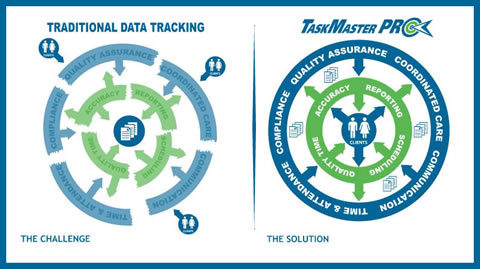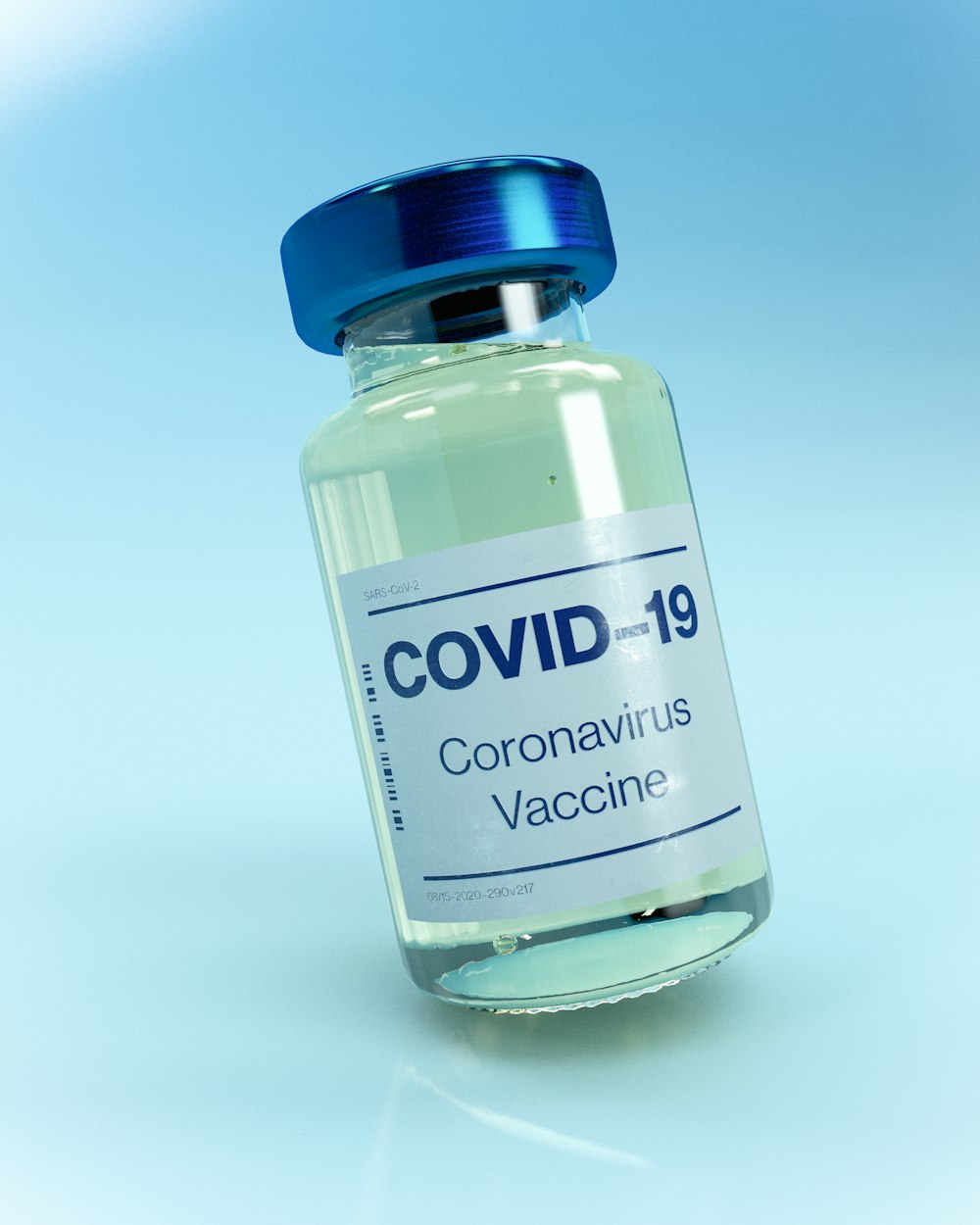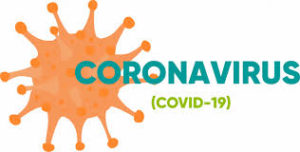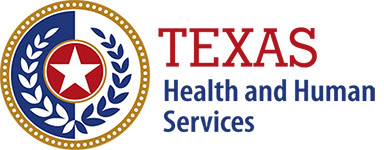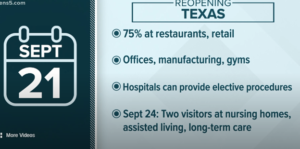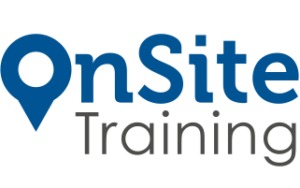Twogether Updates
CBT (Computer Based Training) For Entering Claims For HCS & TxHmL Services As Of March 1st, 2022
February 8th, 2022
CBT (Computer Based Training) For TMHP Billing of Services/Entering Claims
For those of you asking where to submit claims for HCS & TxHmL services after March 1st, this will be via TMHP. CARE will no longer be used to submit these claims as of March 1st, 2022. Training on how to submit your claims can be found on the TexMedConnect for LTC Providers portal via CBT training.
TexMedConnect for Long-Term Care (LTC) Providers
“This CBT contains information about using TexMedConnect to verify client eligibility, enter and submit claims and appeals, and find claim status.
The TexMedConnect for Long Term Care Providers CBT helps providers with:
– Logging on to TexMedConnect;
– Using the Medicaid eligibility and service authorization verification (MESAV) function;
– Entering, saving, and submitting claims and adjustments:
– Using the Claim Data Export, Claim Status Inquiry (CSI), Pending Batch, and Batch History functions; and
– Viewing Remittance and Status (R&S) Reports and Claims Identified for Potential Recoupment (CIPR) Provider Reports.”
See the link below for CBT Training for claims and other TMHP functions:
https://tmhp.exceedlms.com/student/path/181116-texmedconnect-for-long-term-care-ltc-providers
Can An HCS Program Provider Provide Services To Their Own Child Or Family Member?
I recently received this response from HHSC and thought it might be helpful to some providers who may have this concern:
There is no rule or regulation that prohibits an HCS Program Provider from providing services to their own child or family member. You can pop over to this site to get in touch with the best lawyers who will help you to claim this scheme.
The program provider’s operations must prevent conflict of interest as required by 40 TAC §9.177(f):
§9.177 Certification Principles: Staff Member and Service Provider Requirements
(f) The program provider’s operations must prevent:
(1) conflicts of interest between the program provider, a staff member, or a service provider and an individual, such as the acceptance of payment for goods or services from which the program provider, staff member, or service provider could financially benefit, except payment for room and board;
(2) financial impropriety toward an individual including:
(A) unauthorized disclosure of information related to an individual’s finances; and
(B) the purchase of goods that an individual cannot use with the individual’s funds;
(3) abuse, neglect, or exploitation of an individual;
(4) damage to or prevention of an individual’s access to the individual’s possessions; and
(5) threats of the actions described in paragraphs (2) – (4) of this subsection.
And, the program provider must ensure they are not disqualified from being a service provider as described in Section 3420(b)-(d) of the HCS Billing Requirements:
3420 Service Provider Not Qualified
Revision 21-3; Effective September 1, 2021
(b) Spouse Not Qualified as Service Provider
A service provider is not qualified to provide a service component or subcomponent to the service provider’s spouse.
(c) Relative, Guardian or Managing Conservator Not Qualified as Service Provider for Certain Services
A service provider is not qualified to provide case management, residential support, supervised living, behavioral support services or social work services to an individual if the service provider is:
(1) a relative of the individual (Appendix II, Degree of Consanguinity or Affinity, explains who is considered a relative for purposes of these requirements);
(2) the individual’s guardian; or
(3) the individual’s managing conservator.
(d) Parent, Spouse of Parent or Contractor Not Qualified as Service Provider for Minor
A service provider is not qualified to provide a service component or subcomponent to a minor if the service provider is:
(1) the minor’s parent;
(2) the spouse of the minor’s parent; or
(3) a person contracting with DFPS to provide residential child care to the minor, or is an employee or contractor of such a person.
According to Section 3430 of the HCS Billing Requirements:
3430 Relative, Guardian or Managing Conservator Qualified as Service Provider
Revision 21-1; Effective January 1, 2021
If a relative, guardian or managing conservator is not otherwise disqualified to be a service provider as described in Section 3420, Service Provider Not Qualified, or in Section 4000, Specific Requirements for Service Components Based on Billable Activity, the relative, guardian or managing conservator may provide audiology services, dietary services, occupational therapy, physical therapy, speech and language pathology services, day habilitation, in-home day habilitation, registered nursing, licensed vocational nursing, specialized registered nursing, specialized licensed vocational nursing, transportation as a supported home living activity, host home/companion care, respite, in-home respite, employment assistance or supported employment if the relative, guardian or managing conservator is a qualified service provider for the particular service component or subcomponent being provided.
HCS/TxHmL Writing Acceptable Plans of Correction Webinar-Feb. 9th, 2022
February 1st, 2022
HCS/TxHmL Writing Acceptable Plans of Correction Webinar
“WHAT IS A POC? 42 CFR §488.401 defines a Plan of Correction to mean a plan developed by the facility and approved by CMS or the survey agency that describes the actions the facility will take to correct deficiencies and specifies the date by which those deficiencies will be corrected.Apr 19, 2021″
Program providers can register for the Writing Acceptable Plans of Correction for HCS and TxHmL webinar. This webinar covers the process for writing an acceptable plan of correction for HCS and TxHmL program providers. No CE is awarded for this webinar. However, a certificate of attendance will be provided.
This will be an ongoing offering posted on the HHCS HCS/TxHmL Joint Training website.
Wednesday, Feb. 9
1 – 4 p.m.
Register for the webinar.
Email questions to Joint Training.
Allowance of Delivery of PT, OT, and ST Services Via Telehealth (IL 2022-08)
February 1st, 2022
HHSC Publishes Information on Delivery of PT, OT, and ST Services (IL 2022-08)
HHSC is issuing interim guidance allowing telehealth delivery of physical therapy, occupational therapy, and speech therapy services. Access Information Letter No. 2022-08, HB4: Physical Therapy, Occupational Therapy, Speech Therapy Services Delivered by Synchronous Audio-Visual. The letter notes which therapies are not allowed to be delivered through telehealth modalities because the service requires in-person delivery.
This guidance applies to the following programs:
- Community Living Assistance and Support Services Providers
- Deaf-Blind with Multiple Disabilities Providers
- Home and Community-based Services Program Providers
- Texas Home Living Program Providers
Email the LTSS policy mailbox with questions about this alert.
COVID-19 Cases Continue to Rise – What Should LTC Providers Do?
February 1st, 2022
Guidance for LTC Providers
COVID-19 cases continue to increase across Texas. HHSC reminds providers to follow the guidelines listed below and ensure their emergency plan is up to date. Staff must be aware of what to do in the event of any sort of emergency, including an outbreak of flu or COVID-19.
Please review the following rules, guidelines, and policies:
- COVID-19 mitigation and visitation rules for your provider type
- Any applicable COVID-19 response plans for your provider type
- Your organization’s infection prevention and control policies
All provider types must continue to screen residents, clients, staff, and visitors for signs and symptoms of COVID-19.
Staff for all provider types must continue to use appropriate personal protective equipment (PPE).
Where required by rules for your provider type, providers must continue effective cohorting of residents based on COVID-19 status.
Find COVID-19 resources for your provider type online:
- The COVID-19 Resources section of your provider portal
- The HHSC Coronavirus (COVID-19) Provider Information page
Your maintaining vigilance in following infection control requirements makes a difference in protecting vulnerable Texans.
LTC providers are always required to provide services to residents before, during, and after any emergency. Your organization’s emergency plan or policy must include:
- Planning for staff shortages
- Back-up plans to ensure operations and care of residents or clients continues
Read program-specific rules related to staffing, emergency preparedness, and infection control:
- Intermediate Care Facilities for Individuals with an Intellectual Disability or Related Conditions
- Home and Community-based Services
- Texas Home Living
The U.S. Department of Health and Human Services has developed a COVID-19 Healthcare Planning Checklist (PDF) that you can use to assist you in creating a plan for dealing with an outbreak of flu or COVID-19.
For questions, email LTCR Policy.
HHSC has published ICF and HCS Emergency Staffing Requests Letter – Jan. 10th, 2022
HHSC has published ICF and HCS Emergency Staffing Requests – Jan. 10
HHSC has published ICF and HCS Emergency Staffing Requests (Provider Letter 2022-02). This letter provides information for Intermediate Care Facilities for Individuals with an Intellectual Disability (ICFs) or Related Conditions and Home and Community-based Services (HCS) program providers facing staffing shortages related to the COVID-19 public health emergency.
ICF & HCS Surveys: Backlog of Surveys and Compliance Expectations
January 14th, 2022
HCS program providers also need to be able to show compliance at all times.
For recertification surveys, surveyors will look at records from after the last recertification survey exit date forward to the present survey. 40 TAC 9.178(g) provides that “the program provider must make available all records, reports, and other information related to the delivery of HCS Program services and CFC services as requested by HHSC, other authorized agencies, or CMS and deliver such items, as requested, to a specified location.”
In regards to the backlog, as per our survey ops partners, ICF/IID should be up-to-date on their annual surveys and LTCR is working on completing [HCS/TxHmL] surveys and working through any outstanding backlogs.
Vaccine Mandate Updates
Texas COVID-19 Coronavirus Resources & Guidance for People with Disabilities
Check Out These Resources For Persons With Disabilities From The Office of Texas Governor Greg Abbott
https://gov.texas.gov/organization/disabilities/coronavirus
https://tcdd.texas.gov/resources/covid-19-information/government/
Texas COVID-19 Coronavirus Resources & Guidance for People with Disabilities
State Agencies and Councils COVID-19 Pages
- Department of Family and Protective Services
- Department of State Health Services
- Texas Health and Human Services Commission
- Texas Council on Developmental Disabilities
- Texas Department of Emergency Management
- Texas Education Agency
- Texas Workforce Commission
- Commission on State Emergency Communications
Effective Communication Tips for Community Vaccination Sites
Accessible Guidance
- Easy to read COVID-19 Safety Guidelines
- CDC COVID-19 guidelines in ASL on YouTube
- Center for Inclusive Design and Innovation (CIDI) Accessible Resources
- Braille resources;
- Other alternative formats (e.g., for people who access the Internet using screen readers)
COVID-19 Vaccine Information in ASL
- DSHS Commissioner COVID-19 Vaccine Update in ASL
- FEMA released the following videos on accessing video remote interpreting (VRI) and the language line when you getting your vaccine at a community vaccination center:
- FEMA Accessible: Community Vaccination Centers Language Access (ASL) (Open Caption)
- FEMA accesible: Acceso en su idioma a los centros comunitarios de vacunación
- ASL VRI Support Flier
The ADA and Face Mask Policies
The Great Plains ADA Center has created a frequently asked questions page to help clarify some of the questions surrounding the ADA, mask orders, and disability.
Mental Health Support
The Substance Abuse and Mental Health Services Administration (SAMHSA) operates a free, 24/7, 365-day-a-year disaster distress helpline. This line provides crisis support and counseling to people experiencing emotional distress related to natural or human-caused disasters. Call or text 1-800-985-5990 to connect with a trained crisis counselor. Deaf and hard-of-hearing callers can contact the same number through their videophone to access 24/7 ASL support.
Rules for Everyone
The Texas Department of State Health Services (DSHS) recommends these simple, everyday actions to help prevent the spread of COVID-19:
- Wash your hands often and for at least 20 seconds (long enough to sing “Happy Birthday” twice). Be sure to encourage friends and family to do the same;
- If no soap and water are available, use hand sanitizer with at least 60% alcohol. Remember that soap and water are the gold standard;
- Cover coughs and sneezes with a tissue (if you don’t have a tissue, sneeze into the crook of your elbow), then throw the tissue away. Wash your hands after!
- Avoid touching your eyes, nose, and mouth with unwashed hands;
- Disinfect frequently touched surfaces like buttons, handles, knobs, and counters. Your cell phone is your “third hand,” be sure to sanitize it often.
- Avoid close contact with people who are sick;
- Practice social distancing- this includes avoiding crowds and maintaining six feet of distance between you and others in public.
- DSHS has created a social media toolkit as well as other resources that you can use to spread the word on how to help slow the spread of COVID-19.
Follow Texas DSHS COVID-19 Updates
Emergency Rental Assistance
The Texas Department of Housing and Community Affairs (TDHCA) has received $1.3 billion in Emergency Rental Assistance funds from the Coronavirus Relief Bill. TDHCA’s Texas Rent Relief program website and phone systems are active. TDHCA accepts applications from landlords and tenants.
- To learn more about the program and apply online go to TexasRentRelief.com
- To learn more about the program and apply by phone, call 833-9TX-RENT / 833-989-7368.
For more information on the Texas Rent Relief program go to the TDHCA FAQ page.
Additionally, the Texas Eviction Diversion Program (TEDP) was created by the Supreme Court of Texas, Texas Office of Court Administration and TDHCA to help eligible tenants stay in their homes and provide landlords with an alternative to eviction. A portion of the Texas Rent Relief funds is reserved for this activity.
Guidance on “Long COVID” as a Disability Under the ADA, Section 504, and Section 1557
Although many people with COVID-19 get better within weeks, some people continue to experience symptoms that can last months after first being infected, or may have new or recurring symptoms at a later time. This can happen to anyone who has had COVID19, even if the initial illness was mild. People with this condition are sometimes called “long-haulers.” This condition is known as “long COVID.” In light of the rise of long COVID as a persistent and significant health issue, the Office for Civil Rights of the Department of Health and Human Services and the Civil Rights Division of the Department of Justice have joined together to provide the following guidance:
GCPD COVID-19 Webinars
COVID-19 Vaccine and People with Disabilities Q&A, presented on March 9, 2021
- DSHS’s Answers to Follow-Up Questions in PDF Format
- DSHS’s Answers to Follow-Up Questions in Word Format
HHSC and TEA COVID-19 Disability Policy Q&A, presented on April 17, 2020
COVID-19: Considerations for Individuals with Disabilities, presented on April 1, 2020
- HHSC’s Answers to Webinar Questions in Word Format
- HHSC’s Answers to Webinar Questions in PDF Format
Communication
Tips for Successful Communication with People with Disabilities
Communication Tips in Word Format
Communication Tips in PDF Format
Communication Tips in Spanish
It is imperative emergency management information be made accessible in order to integrate the needs of people with disabilities. The Americans with Disabilities Act (ADA) and the 21st Century Communications and Video Accessibility Act (CVAA) require emergency management information to be made accessible in order to integrate the needs of people with disabilities. Accessible information helps support the needs of the whole community and makes sure no one is left without potentially lifesaving information. GCPD reminds broadcasters of the steps that need to be taken in order to make sure information is accessible, as well as the availability of the State of Texas Effective Communications toolkit.
The Federal Communications Commission (FCC) has released additional guidance on accessible televised emergency communication. Community situations such as pandemics are considered emergencies. Information about a current emergency that is intended to further the protection of life, health, safety, and property must be provided visually and aurally.
Education
The Texas Education Agency (TEA) COVID-19 page provides updates on school closures as well as the continued responsibility to provide education to students with disabilities.
As colleges and universities have transitioned to digital learning platforms as part of a campus mitigation plan, GCPD reminds them of their legal responsibility to ensure access to curriculum and instruction for students with disabilities. This includes practical considerations, such as making sure instructional materials are captioned and making use of Video Remote Interpreting and Video Relay Services to provide interpreters in class.
The CDC and Department of Education have provided additional guidance on providing services to students with disabilities during COVID-19. By helping childcare programs, schools, and their partners understand how to prevent the transmission of COVID-19 within their communities and facilities, administrators can help flatten the curve. In addition to mitigation planning, this guidance includes considerations to help administrators plan for the continuity of teaching and learning. Finally, this guidance includes a decision tree to help schools and facilities determine which mitigation plan is best in three scenarios: all schools regardless of community spread, no community spread, and minimal to moderate or substantial community spread.
Health
Governor Abbott has waived certain regulations in order to increase access to telemedicine and prevent unnecessary exposure via in-person doctor visits.
The Texas Health and Human Services Commission (HHSC) has issued guidance relating to certain Medicaid waivers, such as Home and Community-Based Service (HCS) and Texas Home Living (TxHmL). Similar to the guidance prohibiting non-essential visitors in nursing homes and other institutions, HHSC has mandated HCS and TxHmL providers prohibit visitation from non-essential personnel. Given that many group homes serve medically fragile individuals, it is necessary to take strong precautions to prevent the spread of COVID-19 among this population.
HHSC’s, DSHS & CDC Update: COVID-19 Omicron Variant
January 10th, 2022
When was Omicron Variant First Found in Texas and What is This Variant of COVID-19? (Please see article below)
Texas Identifies Case of COVID-19 Omicron Variant
News Release
Dec. 6, 2021
The first known Texas case of the COVID-19 B.1.1.529 variant has been identified in a resident of Harris County. The adult female resident was recently diagnosed with COVID-19. Results of genetic sequencing this week showed that the infection was caused by the Omicron variant strain. The case is being investigated by Harris County Public Health and the Texas Department of State Health Services.
“It’s normal for viruses to mutate, and given how quickly Omicron spread in southern Africa, we’re not surprised that it showed up here,” said Dr. John Hellerstedt, DSHS commissioner. “Getting vaccinated and continuing to use prevention strategies, including wearing a mask when you are around people you don’t live with, social distancing, handwashing and getting tested when you have symptoms, will help slow the spread of the virus and help end the pandemic.”
The B.1.1.529 variant was identified in South Africa last month and appears to spread more easily from person to person than most strains of the coronavirus. Currently, it is unclear if the Omicron variant is associated with more severe disease. Studies have commenced to determine how effective vaccines are expected to be against infection. However, vaccination is expected to continue to offer protection against hospitalization and death. Omicron is thought to be responsible for a small proportion of the current COVID-19 cases in Texas and the United States.
Vaccination remains the best protection against serious illness and death from COVID-19. Everyone 5 years and older is eligible for vaccination, and everyone 18 years and older should get a booster shot when they are eligible. The latest on COVID-19 in Texas is available at dshs.texas.gov/coronavirus, including daily case data and information on testing and vaccination.
HHS
Corona Virus Testing and Testing Information (Includes videos and information about finding testing locations near you and home-testing as well)
DSHS
Below are frequently asked questions (FAQs) about the variants of COVID-19, including the Delta and Omicron variants.
How can I tell if I have the Delta or Omicron variant? Do labs report that to the state?
That information may not be readily available. The viral tests that are used to determine if a person has COVID-19 are not designed to tell you what variant is causing the infection. Identifying COVID-19 variants requires a special type of testing called genomic sequencing. Due to the volume of COVID-19 cases, sequencing is not performed on all viral samples. However, because the Omicron variant now accounts for the majority of COVID-19 cases in the United States, there is a strong likelihood that a positive test result indicates infection with the Omicron variant.
Are the symptoms different for the Delta or Omicron variant? If so, what are they?
Because Delta and Omicron are variants of the same virus—SARS-CoV-2, the virus that causes COVID 19—the symptoms and the emergency warning signs are the same. However, some variants may spread more easily or may cause more severe symptoms and illness. Because of this, scientists are actively monitoring and studying new variants to learn more about how easily they spread, whether they make people more or less sick, and how well they respond to existing vaccines, treatments, and tests.
Is Texas tracking variants of COVID-19?
Yes. Public health officials at the federal, state, and local levels continue to study variants, monitor their spread, develop strategies to slow their spread, and test how variants may respond to existing therapies, vaccines, and testing. For information on variants of concern in Texas, see the Variants and Genomic Surveillance for SARS-CoV-2 in Texas section of the DSHS website.
Who is most at risk of contracting a variant of COVID-19?
Unvaccinated people are most at risk of contracting COVID-19, including any of its variants. The Delta and Omicron variants are more aggressive than other known variants and spread most rapidly in communities with fewer fully vaccinated people.
The absolute best protection for yourself and those close to you is getting fully vaccinated. The vaccine is proven to safely protect you from COVID-19’s worst effects and lowers your chances of spreading the virus. Greatly increasing the number of fully vaccinated Texans is the only way to prevent a devastating rise in the spread of the pandemic virus.
Are the newer variants worse than the early COVID-19 strains? Will a variant make me sicker than previous strains?
Omicron appears to spread much more easily than other known variants, which means it’s more contagious than other variants. We are still learning whether Omicron may put infected people at higher or lower risk of hospitalization than other variants.
What’s the treatment for patients with the Delta or Omicron variant?
There are different treatment options available for all COVID-19 variants, but some treatments may be more effective for certain variants. In many cases, treatments are reserved for certain high-risk groups. If you or a loved one is sick, check with your healthcare provider about your specific case.
What is the current travel guidance?
Travel recommendations may vary depending on whether you are fully vaccinated or not. Some travel destinations may have different requirements for vaccinated and unvaccinated travelers.
Keep in mind that travel and other guidance may change as we learn more about the virus variants and breakthrough cases. Stay up to date with CDC travel recommendations by visiting the Travel page of the CDC website.
Are people of certain ages at higher risk for infection with the newer variants?
Yes. Anyone who is not fully vaccinated is at greater risk of getting COVID-19. Children up to 5 years old are not yet eligible to receive the COVID-19 vaccine. Anyone who is old enough and able to get the vaccine should do so to protect those who are unable to get it, as well as those for whom the vaccine is less protective. That includes children under age 5 and people with certain medical conditions. It’s also important for those people who qualify to get the booster dose, too.
How many known variants are there?
There are many. Because viruses constantly change through mutation, new variants occur all the time. Sometimes they disappear, and sometimes they persist. Variants are classified in four ways, from least to most severe: Variants Being Monitored, Variants of Interest, Variants of Concern, and Variants of High Consequence.
Public health officials are currently studying two that are classified as Variants of Concern: Delta and Omicron. These are variants that show evidence of an increase in transmissibility, more severe disease (increased hospitalizations or deaths), and/or reduced effectiveness of tests, treatments, or vaccines.
In the U.S., there are currently many Variants Being Monitored, but no Variants of Interest or Variants of High Consequence.
To learn more about variants in the U.S., visit the About Variants of the Virus, Variant Classification, and Variant Surveillance pages on the CDC website.
What are the differences between the variants?
Variants vary by their genetic markers. These differences in genetic markers may affect how easily the virus is spread, the severity of illness, how well existing tests can detect the virus, the effectiveness of treatments and vaccines, and more.
Each variant is slightly different. Think of variants like branches on a tree. Each branch is slightly different than others on the tree, but they have similarities, too. Scientists study the differences in COVID-19 variants, so they can label and track them according to those differences.
Do the vaccines protect against the Omicron variant?
Early data suggest that the available vaccines are effective against severe disease and hospitalization caused by the Omicron variant. The best protection against any COVID‑19 variant is getting fully vaccinated. And a booster dose of vaccine is a proven way to maximize the protection against infection and severe disease.
Which vaccine provides better protection against the virus?
In mid-December 2021, CDC updated their vaccine recommendations with a preference for mRNA vaccine (Pfizer and Moderna) over the Johnson & Johnson (J&J) vaccine. However, public health experts continue to say that getting any vaccine is better than being unvaccinated. J&J vaccine will remain available for people who are unable or unwilling to get an mRNA vaccine.
Read CDC’s media statement to learn more about the updated vaccine recommendations.
Keep in mind that guidance may change as we learn more about the virus variants. DSHS will update information as it becomes available.
LTC Regulatory Services
Incident Reporting
HHS regulated providers can self-report incidents affecting resident health/safety, including issues related to COVID-19, online to the Health and Human Services Commission or by calling 1-800-458-9858.
- Incidents Submission Portal for Long-term Care providers
- Incidents Submission Portal for Health Care Quality providers
Intermediate Care Facilities (ICF/IID)
- ICF/IID Provider COVID-19 Vaccination Data Reporting Rule (PDF)
- ICF/IID COVID-19 Expansion of Reopening Visitation Emergency Rule (PDF)
- ICF/IID COVID-19 Response Emergency Rule (PDF)
- COVID-19 Response for ICF/IIDs (PDF)
- Frequently Asked Questions for ICF/IIDs (PDF)
Home and Community-based Services (HCS) and Texas Home Living (TxHmL)
Revised Guidance for LTC Facilities Experiencing COVID-19 Staffing Shortages
Revised Guidance on Staff Work Restrictions and Return to Work
HHSC has issued revised guidance for long-term care providers experiencing staffing shortages due to COVID-19. The requirement to contact LTCR before implementing CDC guidance on staff work restrictions and return-to-work has been removed.
“Guidance and Protocol for Long-Term Care Facilities Experiencing Staffing Shortages due to the COVID-19 Public Health Emergency.
This checklist provides guidance for long-term care facilities and residential providers facing staffing shortages related to the COVID-19 public health emergency.
This checklist incorporates CDC guidance with state and federal staffing requirements.
Facilities facing staffing shortages must use this checklist before requesting emergency staffing resources. The CDC’s mitigation strategies are meant to be implemented sequentially (i.e., contingency strategies before crisis strategies). The conventional strategies must be followed when the facility has adequate staffing.
As a reminder, facilities are required to cohort residents based on their COVID-19 status: COVID-19 negative (COVID-negative), COVID-19 positive (COVID-positive), and unknown COVID-19 status (COVID-unknown).1 Healthcare personnel (HCP) are considered “boosted” if they have received all COVID-19 vaccine doses, including a booster dose, as recommended by CDC.”
For more…. Read the updated guidance.
LTC (Long Term Care) Online Portal BasicsWebpage
January 9th, 2022
Please click on link below to take you to the “LTC Online Portal Basics” page with important information on usages for the portal, e-learning training sessions, and pdfs of manuals needed for navigating the portal
This interactive training provides a basic overview of the Long Term Care (LTC) Online Portal including an overview of the features of the blue navigational bar and the yellow Form Actions bar. Demonstrations and simulations are available to provide opportunities for hands-on experience. For program-specific details of the features discussed, you will be referred to the CBT or User Guide for your LTC program.
Length: Modules vary from 2 to 20 minutes
When you have completed this CBT, you should be able to:
-
- Follow the requirements for obtaining and using a National Provider Identifier (NPI) or Atypical Provider Identifier (API);
- Log in to the LTC Online Portal;
- Create an administrator account on the LTC Online Portal;
- Use the features of the blue navigational bar;
- Use the features of the yellow Form Actions bar; and
- Understand general information for the LTC Online Portal, including:
- Required fields;
- Unlocking forms;
- Entering dates;
- History trail;
- Error messages; and
- Time-out.
Below are some helpful PDF’s
Accessible PDFs
-
-
Accessible PDF: LTC Online Portal Basics – Main
Accessible PDF: LTC Online Portal Basics – Introduction
Accessible PDF: LTC Online Portal Basics – Create Administration Account
Accessible PDF: LTC Online Portal Basics – Create Administration Account – Simulation
Accessible PDF: LTC Online Portal Basics – Logging In
Accessible PDF: LTC Online Portal Basics – My Account
Accessible PDF: LTC Online Portal Basics – Blue Navigation Bar
Accessible PDF: LTC Online Portal Basics – Submit Forms – Demonstration
Accessible PDF: LTC Online Portal Basics – FSI – Demonstration
Accessible PDF: LTC Online Portal Basics – FSI – Simulation
Accessible PDF: LTC Online Portal Basics – Vendors – Demonstration
Accessible PDF: LTC Online Portal Basics – Current Activity – Demonstration
Accessible PDF: LTC Online Portal Basics – Drafts – Demonstration
Accessible PDF: LTC Online Portal Basics – Printable Forms – Demonstration
Accessible PDF: LTC Online Portal Basics – Alerts – Demonstration
Accessible PDF: LTC Online Portal Basics – Yellow Form Actions Bar
Accessible PDF: LTC Online Portal Basics – Add Note – Demonstration
Accessible PDF: LTC Online Portal Basics – Correct This Form – Demonstration
Accessible PDF: LTC Online Portal Basics – Inactivate Form – Demonstration
Accessible PDF: LTC Online Portal Basics – Print Menu – Demonstration
-
HCS Provider Applicant- Provider Applicant Training (PAT) and Test Information Update
“Study & Prep Session For HCS Provider Applicant Test”
Contact us for a copy of pre-recorded session from November 3rd, 2021
This Training is Not Affiliated In Any Way with HHSC
It is Provided by Twogether Consulting, a private consulting company for HCS/TxHmL & ICF providers (As well as persons seeking Information about these Medicaid programs)
(We will be reviewing some TxHmL information as well)
Cost: $150/person
To register, please go to:
Topics:
Description of HCS & TxHmL Waivers and Basic Terminology Needed
Tips for Preparing For The HCS Provider Certification Test.
Important Sections of the HCS & TxHmL Handbook and Interpretive Guidance Booklet,
Frequently Asked Questions found on the HHSC HCS/TxHmL home pages.
Frequently Cited TAC Codes (HCS & TxHmL)
How to Access Important Information on the HHSC Website: Joint Training Opportunities, HCS/TxHmL Waiver Training, Resources, Contact Information, etc..
Information on Person-Centered Training Opportunities and The Importance of This Training
What Happens After I Pass My Test?
HCS Practice Test during the session, so that you may become comfortable with the type of questions that may be asked during the PAT testing session
Don’t forget to study for your test!!!
Links to TAC (Texas Administrative Codes) provided below to Study
HCS https://texreg.sos.state.tx.us/public/readtac$ext.ViewTAC?tac_view=5&ti=40&pt=1&ch=9&sch=D&rl=Y
TxHmL: https://texreg.sos.state.tx.us/public/readtac$ext.ViewTAC?tac_view=5&ti=40&pt=1&ch=9&sch=N&rl=Y

HCS/TxHmL-Provider Applicant Test Study Material (Update)
Some additional helpful study material prior to taking the HCS Provider Applicant Test, are listed below.
HCS/TxHmL Interpretive Guidance Booklet (as Required byHouse Bill (H.B.) 3720, 87thLegislature, 2021)
This guidance booklet was meant to assist providers and surveyors with surveyor expectations and considerations when handing out administrative penalties for violations of the certification principles
HCS & TxHmL Joint Training Opportunities HHSC website page (Please see free webinars that review the 9 major certification principles from the HCS TAC code. These principles are also noted in the HCS Handbook and the new Interpretive Guidance Booklet)
For additional information on the Joint Training Opportunities webinars or requesting a link to pre-recorded webinars you may have missed, please email LTCRJointTraining@hhs.texas.gov
*In addition don’t forget the primary study material is the: HCS Handbook, the HCS TAC, and for TxHmL TAC for those also taking the TxHmL test.
“My application was accepted to become an HCS &/or TxHmL Waiver Provider, now what do I do?”
Once your Contract Manager has informed you via email of your approved application, you will receive an email approving your application with a link to the HHS Portal, and the Program Manager will have to create an account to complete the training. Please contact IDDWaiverContractEnrollment@hhsc.state.tx.us, or call 512-438-3234 to confirm with your assigned Contract Manager.
• Once you set up your new account, find and select the Medicaid Long Term Services and Support Training under “Course Categories.”
• Select the Provider Applicant Training (PAT) link. The training is compiled in three different steps. Helpful tips are available on this page.
Step 1: Important to know Before you Get Started
Step 2: Training Modules
➢ Each module must be completed to advance to the next module.
Step 3: Evaluation and Certificate
➢ Complete the mandatory survey to gain access to the Provider Applicant Training Certificate
➢ Make sure to save your certificate of completion
➢ You will be notified via email of your test dates
There are 12 modules.
How long can I take to complete the training?
The training can be completed at your own pace.
You will have 40 minutes to complete the test. No additional time will be allotted.
Yes, but only within the 40 minutes allotted.
The system will grade your test immediately after completing it.
Your HHS Contract Manager will contact you via email to explain the next steps, which will include scheduling a pre-award site visit.
Is there a retake if I failed the test?
There will be two opportunities to take the test. If you fail a second time you will be required to retake the training
If you do not pass the third test attempt, please submit a new application if you would still like to become a provider.
HCS Provider Applicant- Provider Applicant Training (PAT) and Test
Start studying now, if you haven’t already!!
Remember to get prepared and please study. You may have been waiting a long time to test, but I know that applicants sometimes don’t study as much as they need to, to take the test. If you have come this far, you do not want to fail the test and have to start all over again! Please contact us if you need help in preparing for the test. We do provide services such as study prep sessions, practice tests, etc…
Be sure to study the HCS Handbook and the Texas Administrative Codes for HCS (& TxHmL if you applied for this certification as well). See links below:
Go to this site. These sections are the HCS Handbook and are a “non-legalize” explanation of the HCS Texas Administrative Code. They also tell you who is responsible for what. LIDDA Vs. Provider. But your specific questions for the test will most likely be coming from the HCS TAC code. This is just a better explanation to make you understand those rules.
https://hhs.texas.gov/laws-regulations/handbooks/home-community-based-services-handbook
New Revised TAC (Texas Administrative Code) for HCS
(Home & Community Based Services) was put into effect in October 2019.
Title 40 Part 1 Chapter 9 Subchapter D
https://texreg.sos.state.tx.us/public/readtac$ext.ViewTAC?tac_view=5&ti=40&pt=1&ch=9&sch=D&rl=Y
Section 9.151 through 9.192.
New Revised TAC (Texas Administrative Code) for TxHmL
(Texas Home Living Waiver was put into effect in October 2019.
https://texreg.sos.state.tx.us/public/readtac$ext.ViewTAC?tac_view=5&ti=40&pt=1&ch=9&sch=N&rl=Y
Title 40 Part 1 Chapter 9 Subchapter N
Section 9.551 through 9.587
Important-HCS and TxHmL Webinars and Claim Payment Account Setup (Coming Soon!)
HCS and TxHmL program providers, Local Intellectual and Developmental Disability Authority agencies, and Financial Management Services Agencies billing on behalf of Consumer Directed Services employers can register for webinars starting next month. These webinars will cover information about the Long-Term Care Online Portal and forms that HCS and TxHmL program providers will use.
The webinars will:
- Include a live Q&A session
- Begin in February 2022
Details, including dates, times, and registration links will be in a future article on the Texas Medicaid & Healthcare Partnership website. Providers should check the Recent News section of the LTC webpage often for current information.
HCS and TxHmL program providers, LIDDAs, and FMSAs will begin submitting claims and forms to TMHP on March 1, 2022. Program providers, LIDDAs, and FMSAs should set up the following accounts, if not yet done:
- One of the following for Claims Submission Account:
- TexMedConnect
- Electronic Data Interchange
- LTC Online Portal
- TMHP Learning Management System
Failure to set up the necessary accounts can lead to payment delays after March 1, 2022. Program providers, LIDDAs, and FMSAs can find resources for creating the necessary accounts and the time frames it could take to create those accounts linked below.
- TexMedConnect allows users to submit claims and can take up to 10 days. LTC Online Portal allows users to submit, view, and manage forms. Account setup can take up to three days. The TMHP Account Setup for HCS and TxHmL Waiver Programs (PDF) is the available resource.
- EDI allows users to submit claims through a third-party submitter or a provider’s own software. Account setup can take up to 30 days. Access the updated 837P LTC Companion Guide Now Available for HCS and TxHmL Program Claims Submission Practice.
- TMHP LMS allows users access to important TMHP training materials and that takes one day. LMS Registration and Navigation Job Aid for Providers (PDF) is the resource.
Providers can refer to the HCS and TxHmL Waiver Programs Frequently Asked Questions (FAQ) or contact the TMHP EDI Help Desk at 888-863-3638 with questions.
HHSC Publishes Active, Unemployable Work-Around (Provider Letter 2021-44)
December 20th, 2021
Check LEIE/OIG and check With the implementation of FBI-based fingerprinting in 2021, Long-term Care Regulation (LTCR) also implemented Occupations Code (OC), Chapter 53, related to the consequences of a criminal conviction, specifically the 2019 legislative update to OC §53.023 concerning additional factors for licensing authorities to consider after determining a conviction directly relates to the occupation.
Policy Details & Provider Responsibilities Long-term care facilities and agencies must check and continue to check an applicant’s criminal history, Nurse Aide Registry status, and Employee Misconduct Registry. Use the HHSC Employability Status Search at https://emr.dads.state.tx.us/DadsEMRWeb/ (link is external), which includes information regarding Sanctions. OC § 53 requires an employer to consider only convictions directly related to the occupation.
PL 2021-44
With this new implementation, it is possible for an individual to receive a license, permit, or certification who is not employable or only employable in limited settings according to Health and Safety Code (HSC) §250.006.
Beginning December 20, 2021, long-term care facilities and agencies must also check the Excel document linked below to determine if an individual is licensed/permitted/certified but is unemployable in one or more long-term care settings licensed by LTCR. This file contains the names of nursing facility administrators, nurse aides, and medication aides that have active licenses/permits/certifications but are unemployable according HSC §250.006 in one or more long-term care settings.
https://www.hhs.texas.gov/sites/default/files/documents/active-unemployable.xlsx
HHS is updating the Employability Search with information on active but employable individuals. Until this update is complete, providers will be required, in addition to checking the Employability Search, to check the Active but unemployable Excel File in the resources section of this Provider Letter.
Resources Active but unemployable Excel File
Contact Information
If you have any questions about this letter, please contact the Policy and Rules Section by email at LTCRPolicy@hhs.texas.gov or call (512) 438-3161.
SB8- New HHSC Grants Webpage
December 17th, 2021
The link doesn’t inform providers about current information but will provide future information about ARPA funds, and will be available on the newly created HHSC Grants webpage.
Press Release: Governor Abbott, HHSC Announce $128 Million To Support Staffing Needs At Rural Hospitals, Nursing Facilities | Office of the Texas Governor | Greg Abbott
HHSC Grants Webpage: COVID-19 in Healthcare Relief Grants | Texas Health and Human Services
According to the HHSC Provider Finance representative- Ms. Ellison at LTCR Dec. 7th meeting with the IDD workgroup, this is the information on how the state-controlled ARPA funds appropriated via SB 8 (3rd Special Session) will be distributed. [Remember: These funds are separate from the HCBS 10% FMAP funds.]
- ALFs: 2.025 facilities
- ICF/IID: 708 facilities
- Home Health: 6,945 (count based on on number of unique entities/facilities listed as HCSSA)
- Community Attendants which will be separated into 2 groups – CDS and non-CDS: 23,494 CDS providers; 3,498 non-CDS and based on billing data.
Transition of DH to ISS
December 12th, 2021

ISS (Individualized Skills and Socialization)
Changes to Day Habilitation (DH) programs are coming for HCS/TxHmL! The link below contains a discussion concerning the implementation of a recommendation in the Rider 21 Report (General Appropriations Act for FY 2020-2021, 86th Session) related to the monitoring of DH programs which will transition to the provision of ISS.
To view, the report go to: https://www.hhs.texas.gov/sites/default/files/documents/laws-regulations/reports-presentations/2021/rider-21-transition-day-habilitation-services-jan-2021.pdf
- Current DAHS providers who want to also provide ISS.
- HCS/TxHmL providers operating a DH and serve persons eligible to receive ISS.
- Independent DH providers serving persons eligible to receive ISS.
- ICF/IID providers who operate a DH and only serve persons receiving ICF/IID services will not be required to obtain the license. However, if the ICF/IID provider opens its DH program to serve persons eligible to receive ISS, such as persons enrolled in HCS/TxHmL, it will need to obtain the license.



HHSC E-Learning Portal
The HHS Learning Portal
Please bookmark the new location or click here and save to “Favorites”
The new web address for the HHS Learning Portal is: https://learningportal.hhs.texas.gov
New & Current HCS/TxHmL Providers, Please Take These Trainings
These are the courses that are really applicable to HCS/TxHmL providers below and they are all free. Click on them to go directly to these pages:
Following Suspensions Still In Place Related To COVID-19 (HCS): Recap
November 23rd, 2021
While most of the suspensions related to COVID-19 have ended, the following HCS suspensions are still in place.
- HHSC will still allow an HCS four-person residence to add up to two additional individuals temporarily if the residence has the space to accommodate them and has been approved as a four-person residence by HHSC. (Rule: 40 TAC §9.153(39)(B))
- Suspension of the requirement for HCS providers to ensure at least one complete staff shift change per day for individuals receiving residential support. (Rule: §9.174(a)(38)(C))
- Suspension of the requirement for day habilitation to be provided in accordance with the individual’s person-directed plan, individual plan of care, implementation plan, and Appendix C of the HCS Program waiver application. (Rule: §9.174(a)(28))
- In Relation To a recent alert from HHSC concerning “Background Checks”: 40 TAC 9.177(n) states “The program provider must comply with §49.304 of this title (relating to Background Checks).” This rule has not been waived and is still required.
- Concerning IPC’s & IDRC’s and signatures, I have verified with LTCR (Long-Term Care & Regulatroy) policy department the following: The policy letter you will need to reference is IL 2020-45 and it is currently still valid.
According to HHSC, a service coordinator or program provider is not required to obtain signatures of the individual or LAR on an IPC renewal/revision or on supporting documentation. However, the program provider or LIDDA service coordinator must obtain an oral agreement from the individual or LAR about the IPC renewal/revision and supporting documentation and document the oral agreement in the individual’s record. A program provider or LIDDA service coordinator must obtain the signature of a person, other than the individual or LAR, who is required to sign the IPC renewal/revision or supporting documentation.
For more information regarding the End of Temporary Suspension of Certain LTCR Requirements During COVID-19 Outbreak please see Provider Letter 2021-29.
Recording Available -11-10-21: HCS, TxHmL, CLASS, DBMD Webinar
November 10, 2021, HCS, TxHmL, CLASS, DBMD Webinar Recording Available
A recording of the November 10, 2021, Home and Community-based Services (HCS), Texas Home Living (TxHmL), Community Living Assistance and Support Services (CLASS), and Deaf-blind Multiple Disabilities (DBMD) Webinar with Texas Health and Human Services Commission (HHSC) Long-term Services and Supports is available for those who could not attend.
Ways To Assist Providers Currently Using TASKMASTER PRO “Cloud-Based” Services (HCS/TxHmL/ICF/CLASS)
As some of you may know, Twogether Consulting does not work for Taskmaster Pro, but we do have quite a bit of experience with their software and I love the benefits of this “cloud-based” program. In the past, I have also used the software for my own HCS program as we had HCS contracts in over 32 counties. Electronic Records were a must for us with that many counties to keep track of and service providers to monitor! No matter who you choose to provide those services. I do, however, highly recommend that if you currently do not have any type of electronic records system that you might want to start thinking about it, especially if you do have lots of area to cover or a large number of individuals in your program. There are a couple of other programs out there I like and we help providers regardless of what they have chosen to put in place I am no longer an HCS provider myself, as I am so busy with Twogether Consulting, lol but I certainly enjoy helping our clients using TMP.
Currently, we do provide quality assurance to providers in Texas and some out of state. Twogether Consulting often provides additional webinars, training, and assistance for providers who are receiving services from TaskMaster Pro software to help them implement their nursing programs more efficiently with TMP’s great tools. We can also assist providers with getting the most out of your TMP software for facility quality assurance. Typically quality assurance plans are quarterly and/or as needed for example. We provide mentoring for new Case Managers, Q’s, and Nurses, using the TMP software. This can be done off-site and therefore is more cost-effective for the provider.
New: We can also schedule additional 1-on-1 or facility-specific training sessions to help your agency better utilize TaskMaster Pro for coordination of client services, monitoring, and documenting in (HCS, TxHmL, ICF, other IDD/DD waivers)
New: We can develop training content (ppts., handouts, tests, etc..) catered to your agency for your Direct Support Staff, Case Management, QIDP and Nursing staff (i.e. Direct Support Staff Documentation, Policies & Procedures and more.) The facility would be able to keep this training and upload it to the “Training Library” (i.e new hire or annual training)
*Disclaimer: the services mentioned above are not associated with any training, IT support, maintenance, or other services you are receiving directly through Taskmaster Pro or as a condition agreed to in your contract with TaskMaster Pro. These are outside services and are provided solely through Twogether Consulting.
For those of you who are interested in getting more information about Taskmaster Pro or purchasing the software and do not currently have electronic health records, we can provide a free demo after you sign a non-disclosure form, or we can definitely direct you to someone from TMP to provide the demo and assist you with information on the cost and purchasing the software as we do not work for TMP.
Contact us at info@twogetherconsulting.com or on our contact page: to request other services mentioned above!
See Taskmaster Pro Info below from the website.
Developed by a provider for providers!
TaskMaster Pro is a web-based cloud computing system designed specifically for managing Waiver and ICF/DD programs. TaskMaster Pro was created by Larry Hill of Hill Resources in Abilene and his team. Through the internet, you will be able to access information and monitor activity from wherever you are and whenever you want and when regulatory changes occur or required forms are updated, TaskMaster Pro is updated so it will never be obsolete. Now, this user-friendly, integrated system is available to you.
Request a TaskMaster Pro Demonstration
Manage your program anytime and from anywhere in the world with TaskMaster Pro!
The Challenge
With traditional data tracking systems, a heavy emphasis is placed on regulatory guidelines which shift the focus of the direct care providers to that of compliance. This shift causes a break in the flow of quality care and leaves the clients with impersonal care and creates fragmentation in the system.
The Solution
TMP streamlines regulatory compliance by helping to automate the quality assurance processes. In turn, this improves the reporting accuracy of direct care providers and increases overall efficiency. The flow of information is orderly and dynamic allowing for improved client care and improved operations.
-
- Secure Communication Center
-
- Person-Centered Planning
-
- Program Planning for QIDPs (QDDPs, QMRPs), Case Managers, and Program Managers
-
- Complete Medical Module
-
- Psychological/Behavioral Module
-
- Service Delivery Log/Billing Waivers
-
- Client Budget
-
- Direct Care Reporting
-
- Incident/Accident Reporting
-
- Scheduling
-
- Report Tracking
-
- Human Resources
-
- Staff Development and Training Module
-
- Time and Attendance
-
- Electronic Data Signature
-
- Web-Based Cloud Computing
-
- Off-Site Secure Hosting
-
- Automated File Backup
-
- Customizable Access Control
Texas Lawsuits Filed Against COVID-19 Vaccine Mandate Now Includes Challenge To CMS Federal Contractor Rules
PEM (Provider Enrollment Management) System
November 16th, 2021
Starting August 2021, HHSC has begun the transition to one system for Provider Enrollment Management which will move to 1 “smart system” if you want to become a Medicaid vendor/Medicaid provider, re-enrollment every 5 years, and the forms/application will be uniform. They will go directly into TMHP system, not to HHSC. The current paper application forms will not be required. They have begun the process with existing providers.
One system=PEMS
One NPI-based enrollment
One dynamic smart application (no paper)
One dynamic smart provider agreement
One standardized set of enrollment forms
One provider message board
In Summary:
Providers will be enrolling through PEMS online application, no more paper applications. You will no longer enroll through HHSC, the application will go directly to TMHP
IDD providers may recall that in 2015 legacy DADS issued a notice that Medicaid providers had to enroll or re-enroll in Medicaid by March 24, 2016, and every 5 years thereafter. At the time, the process required payment of an application fee that was sent to legacy DADS. Providers were informed, that as a result, the PHE, revalidation was postponed, and that changes to the process were forthcoming (in particular, that the application process would be completed through a TMHP portal).
Effective February 28, 2022 HHSC is ending the flexibility that extended revalidation dates due during the PHE.
- Providers that were due for revalidation effective March 1, 2020 through February 28, 2022 will be given a post-PHE grace period to complete the revalidation process. TMHP will notify providers in January 2022 of their recalculated enrollment end date and again 120 days prior to their enrollment end date.
- A webinar to review the process will be held December 7, 2021. See registration link below.
- The system/portal will go live December 13, 2021.
-
Register for the December 7th webinar: https://www.tmhp.com/news/2021-11-05-register-now-pems-provider-webinar
-
Other Resources/Notices:
https://www.tmhp.com/news/2021-10-29-coming-soon-tmhp-provider-enrollment-and-management-system-pems
https://www.tmhp.com/news/2021-10-13-coming-soon-tmhp-provider-enrollment-and-management-system-pems
https://www.tmhp.com/news/2021-09-24-coming-soon-tmhp-provider-enrollment-and-management-system-pems
Reminder: LTC Providers May Request COVID-19 Emergency Support

November 6th, 2021
LTC Providers May Request COVID-19 Emergency Support
For Emergency Staffing Support:
The Office of the Governor directed DSHS to use staffing agencies to provide medical personnel from out-of-state to Texas health care facilities to assist in COVID-19 operations.
This support will be available to residential long-term care providers.
-Providers must demonstrate that they have exhausted all other options.
-Also that they have urgent need for assistance before requesting emergency staffing support.
The State is asking that jurisdictions and health care entities be judicious with requests for staffing, as the State will not be able to address all staffing needs, especially as the need for emergency staffing ramps up across the state.
LTC providers are always required to provide services to residents or clients before, during and after an emergency.
The emergency plan must include:
- Planning for staff shortages
- A back-up plan to ensure operations and care of residents continues
For COVID-19 Vaccination, Testing Kits, PPE, Disinfection, and HAI/EPI Support:
Long-term care providers can request:
- COVID-19 mobile vaccine clinics for residents and staff
- BinaxNow testing kits. Read PL 2020-49 for details.
- PPE (providers should exhaust all other options before request)
- Facility cleaning and disinfection
- Healthcare-associated infection and epidemiological support
To Request Support:
To initiate a request for COVID-19 support described above, contact the HHSC LTCR Regional Director in the region where the facility is located.
HHSC LTCR staff are responsible for initiating a State of Texas Assistance Request on behalf of the long-term care provider.
HHSC LTCR staff may request supporting documentation to verify need.
CMS and OSHA Issue Temporary Interim Rules on the Vaccine Mandate
- Link to Interim Final Rules and FAQs (scroll to bottom of page): https://www.cms.gov/newsroom/press-releases/biden-harris-administration-issues-emergency-regulation-requiring-covid-19-vaccination-health-care
- CMS is hosting national call/webinar Nov. 4th at 2:00 ET: https://cms.zoomgov.com/webinar/register/WN_7IlEgLznTIm3sqAsv3nHZw
- Link to interim rules: https://public-inspection.federalregister.gov/2021-23643.pdf
- Link to webinar on YouTube: https://www.youtube.com/watch?v=ixxkn3Y8z6g&ab_channel=USDepartmentofLabor
- Link to FAQs: https://www.osha.gov/coronavirus/ets2/faqs
HHSC Publishes Acceptable Documentation for a Criminal History Check for Contractors (IL 2021-48)
HHSC Publishes Acceptable Documentation for a Criminal History Check for Contractors (IL 2021-48)
HHSC has published IL 2021-48 (PDF).
This letter is provided as a companion letter to PL 2019-01 (PDF) which describes acceptable documentation a contractor may use to demonstrate the contractor conducted a criminal history check of an employment applicant or an employee. Licensed contractors must continue to follow the guidance outlined in PL 2019-01. Unlicensed contractors must follow the guidance in this information letter.
For questions about this information letter, please contact LTSSpolicy@hhs.texas.gov
HHSC Publishes Information to Assist People with Terminated SSI (IL 2021-47)
HHSC Publishes Information to Assist People with Terminated SSI (IL 2021-47)
HHSC has published IL 2021-47 (PDF).
It assists people with terminated Supplemental Security Income. In Texas, people who get Supplemental Security Income benefits are eligible for Medicaid. Under normal circumstances, termination of SSI benefits results in losing Medicaid coverage. When the continuous Medicaid coverage period ends, these individuals will lose their Medicaid coverage unless their SSI benefits are reinstated they are found eligible for Medicaid under other criteria. If Medicaid coverage ends for an individual enrolled in a waiver program, their waiver program services will also end.
Following the declaration of a federal PHE (public health emergency) on Jan. 27, 2020, federal guidance allows HHSC to maintain Medicaid coverage for people who lose their SSI benefits.
●They are no longer eligible for Medicaid because they have lost their SSI benefits, but they still have Medicaid coverage due to the current PHE.
●Applying to have SSI reinstated by the SSA . ●Applying for Medicaid for the Elderly and People with Disabilities using Form H1200 and Form 1746-A.
Service coordinators and case managers should also encourage individuals to report changes in their circumstances to HHSC, even during the PHE, to ensure contact and eligibility information remains accurate. These changes may include changes of address, phone number, or pregnancy status. Individuals may report changes online at www.yourtexasbenefits.com, by calling 2-1-1, or by contacting a local HHSC benefits office
From Our Friends At The ARC of TEXAS: Update on Disability Voting Rights & Virtual Support Group For Persons With Disabilities
|
Vote early in Texas through Friday, October 29
|
|
| DOWNLOAD CHECKLIST | |
|
|
Join the next Virtual Support Group meeting
|
|
| READ MORE | |
|
SB 8 (ARPA funds) Passed by the Senate and House!
October 18th, 2021
- Pages 3-24 contain the committee report in bill language. To view bill language related to the one-time direct care recruitment and retention payments, see Section 33, pages 22-24.
- Pages 25 – 75 reflect the conference committee decisions. To view decisions specific to retention and recruitment payments, see Section 15, beginning at the bottom of page 45. The first column reflects the Senate’s version of SB 8; the middle column the House’s version; the last column the conference committee decisions
- Pages 76-77 provide the bill’s fiscal note.
HCS/TxHmL Interpretive Guidance Page With Tools For Rule Interpretations
October 3rd, 2021
HHSC Announces HCS and TxHmL Interpretive Guidance Page
HHSC Long-term Care Regulation created the HCS and TxHmL Interpretive Guidance page. This page connects program providers with relevant tools for rule interpretation. It includes the Interpretative Guidance booklet and Certification Principle training.
October 3rd, 2021
Twogether Consulting highly recommends you read through the HCS/TxHmL Interpretive Guidance Booklet and keep this PDF downloaded on your desktop for reference in preparation for survey and for addressing Plans of Corrections after your survey. This guidance is meant to give you information on what surveyors expect to see when coming to your facility as well as examples of critical vs. non-critical scenarios to help you identify the type of Administrative (monetary) penalties you may incur due to violations (previously citations) made concerning the HCS/TxHmL TAC rules and regs. It is extremely helpful (especially concerning nursing requirements and expectations).
HHSC Publishes Amended Statutory Cap Regarding Administrative Penalties for ICFs (PL 21-34)
September 30th, 2021
![]() CAP Update: Administrative Penalties for ICFs (PL 21-34)
CAP Update: Administrative Penalties for ICFs (PL 21-34)
HHSC published Provider Letter 21-34 Amended Statutory Cap Regarding Administrative Penalties for Intermediate Care Facilities. PL 21-34 notifies providers of changes to how HHSC determines and imposes administrative penalties based on changes made by House Bill 3720 (87th Legislature, Regular Session, 2021).
COVID Vaccine Information- HCS, TxHmL, ICF
September 21st, 2021
Updated CDC Guidance for LTC Facilities on Accessing COVID-19 Vaccine – Sept. 2021
The Centers for Disease Control and Prevention has recently updated resources for long-term care facilities on how to help residents and staff access COVID-19 vaccines:
- Vaccine Access in Long-term Care Settings
- Care Administrators and Managers: Options for Coordinating Access to COVID-19 Vaccines
- Jurisdictions Can Ensure COVID-19 Vaccine Access for Staff and Residents in Long-term Care Settings
September 21st, 2021
COVID-19 Vaccine Status Not a Requirement for Services
In accordance with Governor Abbott’s Executive Order No. GA-39, providers must not require clients to provide documentation of their COVID-19 vaccine status as a condition to receive any Texas Medicaid service.
September 15th, 2021
Update: Getting COVID-19 Vaccines-ICF/IID
Nursing, assisted living, and intermediate care facility staff and residents who want to receive the first, second or third dose of the COVID-19 vaccine may use the options below.
Contact the HHSC LTCR Regional Director in the region where the facility is located. Request a mobile vaccination clinic at your facility. The mobile vaccination clinic can administer first, second, or third doses of the COVID-19 vaccine to residents and staff. Facilities may need to make alternate arrangements for staff and residents to receive any more doses after the vaccination clinic.
Enroll as a DSHS COVID-19 Vaccine Provider. Once registration is complete, vaccine providers can request vaccines. Email COVID-19 Vaccination Enrollment or call the DSHS COVID-19 Vaccine Provider hotline at 877-835-7750 with questions. Read the DSHS Vaccine FAQs for more information.
Contact the pharmacy or vaccine supplier. Coordinate directly with your COVID-19 vaccine supplier to schedule vaccine administration for those who want the vaccine.
Use the following to locate vaccines:
CMS Adds COVID-19 Vaccination to ICF Rules (QSO-21-21-ICFIID)
August 27th, 2021
The Centers for Medicare and Medicaid Services issued Quality Safety & Oversight Memo QSO-21-21-ICFIID (PDF). The memo announces the addition of COVID-19 vaccine immunization-related requirements. This includes:
- New requirements for educating a person or their representatives as well as staff on the benefits and potential side effects with the COVID-19 vaccine.
- Offering the vaccine.
From DSHS website July 19th, 2021
How to Become a COVID‑19 Vaccinator
. Any facility, organization, or healthcare provider licensed to possess or administer vaccines or provide vaccination services is eligible to enroll through DSHS.
The first step to becoming a COVID‑19 vaccine provider is registering through EnrollTexasIZ.dshs.texas.gov.
Only providers registered through this site can receive and administer COVID‑19 vaccine in Texas.
For questions about registration, please call the DSHS COVID‑19 Vaccine Provider hotline at (877) 835-7750, 8 a.m. to 5 p.m., Monday through Friday or email COVID19VacEnroll@dshs.texas.gov.
Watch a joint video message from TMA President Dr. Fite and DSHS Commissioner Dr. Hellerstedt on COVID‑19 vaccine provider enrollment.
Registration Process
Each facility or location, including those that are part of a hospital system or clinic network, must register at EnrollTexasIZ.dshs.texas.gov, complete the Centers for Disease Control and Prevention (CDC) COVID‑19 Vaccination Program Provider Agreement and list the healthcare providers at that location that would be responsible for vaccination.
It is recommended to use the Google Chrome internet browser to complete the COVID‑19 Provider Agreement.
For example, each hospital in a hospital system must complete a registration separately and list vaccine providers there.
More information on the CDC requirements is below.
- COVID‑19 Vaccine Provider Frequently Asked Questions
- Patient Population Adjustment Form
- Texas DSHS Immunization Portal Registration Guide
- Tips and Tricks for Enrolling for COVID‑19 Vaccine Program
- Best Practices for Data Loggers
- COVID‑19 Vaccine Management Resources
After Registration
After completing enrollment, you will receive an email confirming your registration. Once approved, you will receive another email confirming your status as a COVID‑19 vaccine provider.
August 15th, 2021
COVID-19 Vaccination Data Reporting Rule: ICF
HHSC Long-term Care Regulation has published a revised version of the COVID-19 Vaccination Data Reporting Rule (PDF). The rule now includes Emergency Communication System Enrollment for Intermediate Care Facilities for Individuals with an Intellectual Disability or Related Conditions.
The rule requires facilities to report COVID-19 vaccination data within 24 hours and enroll in an emergency communication system. HHSC will inform facilities when they can begin enrollment.
The rule became effective Aug. 11.
February 23rd, 2021
IDD Vaccine Plan Approved (HCS/TxHmL/ICF)
February 12th, 2021
HCS/TxHmL:
Today DSHS reported it has finalized its presentation of the Tarrytown Expocare vaccine plan that the three IDD associations, Tarrytown and DSHS have been working on for many weeks. DSHS says the plan will be presented to DSHS Vaccine Leadership and the Commissioner today and also the Expert Vaccine Allocation Panel (EVAP) at its next meeting Monday morning. They expect to present this plan to the Governor’s Office Monday evening at which point DSHS feels it will have a final answer as to whether the plan is approved. Currently, we are not sure when it will be approved.
**This plan was developed using data the three IDD associations obtained from their respective members which include number of vaccines needed in both ICF/IID and HCS/TxHmL programs. Thank you for all the work our IDD associations do for providers and individuals in the program!)
- HHSC has not made a decision whether this same reporting requirements ICF requires, will be established for the HCS/TxHmL program.
February 12th, 2021
ICF/IID:
HHSC will soon release emergency rules and a Provider Letter related to the process it will use to identify which facilities (staff and residents) have already received the vaccine.
A stand-alone webinar on the requirement will also be held. Here is the link to draft Provider Letter and draft emergency rules
(So remember to update your policies and procedures for COVID-19 /infection control policies and procedures!!!)
ICF/IID providers will be required to complete a survey indicating how many residents and staff have received the vaccine (1st, 2nd, or both doses). The survey will be open for at least the duration of the emergency rule, requiring providers to add any new information about the status of the vaccines given This will allow providers to report 2nd doses given if such was not reflected in a provider’s first data entry (that is provided the individual received a 2-dose vaccine. Some vaccines will only have 1 dose- i.e. Astrozenica), or to report receipt of newly first-doses given.
After this three week period, HHSC will reconcile the data to identify where gaps exist. This process will include contacting providers as needed to confirm the information reported through the survey. HHSC anticipates the reconciliation process taking 2 or 3 days.
The data will then be sent to DSHS to be used to link providers still in need of the vaccine (whether 1st or 2nd dose) for the individuals they serve and their staff. This process will take about 2 weeks. The full process should take 5 weeks total, assuming HHSC completes its reconciliation process in a timely manner and DSHS is able to link providers to a vaccine entity in a speedy and efficient manner.
- Providers will not be cited on the rule, but it is possible to receive a citation from a desk audit (HHSC did not elaborate on this).
- The survey does not capture (and is not intended to capture) data on individuals who have opted not to receive the vaccine.
- Recognizing that not all providers are aware of or are tracking the vaccination status of their staff, providers only need only to report the number of staff of which they are aware have received the vaccine.
.
COVID-19 Information
COVID-19 FAQ’s Updated For HCS/TxHmL
HHSC has revised the Updated HCS and TxHmL COVID-19 FAQ (PDF) in response to the revised HCS and TxHmL COVID-19 Mitigation and Visitation rules.
September 21st,2021
COVID-19 Response Plan Revised HCS/TxHmL
COVID-19 Response Plan (PDF) in response to the revised HCS and TxHmL COVID-19 Mitigation and Visitation rules
9/21/21
Updated to reflect changes in response to GA-38 regarding facemasks and updated CDC guidance
The Table of Contents on pages 4 and 5 of the Response Plan will tell you what changes were made, each time the plan was revised, and the date.
February 22nd, 2021
COVID-19 FAQ’s From HHSC for HCS/TxHML
https://hhs.texas.gov/sites/default/files/documents/doing-business-with-hhs/provider-portal/long-term-care/hcs-txhml-general-covid-faq.pdf
January 7th, 2021
Texas Medicaid CHIP COVID-19 Information
Future meeting notices and information will continue to be shared on these sites, so please check back regularly.
December 2, 2020
Reminder: Requirements and Protocol for COVID-19 Emergency Staffing Requests
HHSC LTCR offers emergency staff for facilities facing severe critical shortages. Emergency staffing is only approved for facilities that can’t provide necessary care to residents due to staffing shortages. Emergency staffing is temporary while facilities get alternative staffing resources.
Facilities must have staffing contingency plans in place to address potential staffing shortages due to COVID-19. (42 CFR §483.73(b)(6)).
Facilities are required to have separate staff assigned to each COVID-19 cohort and not share staff between cohorts unless necessary to maintain adequate staffing (40 TAC §19.2802(i)).
Facilities may only request emergency staffing from HHSC if all the following contingency strategies have been exhausted.
- Share staff between unknown COVID-19 status and positive COVID-19 cohorts (see CDC guidance).
- Contact staffing agencies, nearby health care facilities, partners, or local colleges or health care centers to identify supplemental staff. (40 TAC §19.2802(j))
- Identify alternate facilities with adequate staffing to care for residents with COVID-19.
- Note: Nursing facilities must contact their LTCR Regional Director and local health department before using staff who are asymptomatic and have, or may have, COVID-19. This is generally only allowed in emergencies. Implement or attempt all other staffing contingency strategies listed above before this step.
If a facility has implemented or attempted each item listed above and still does not have adequate staff to meet critical staffing levels, the facility must contact the Regional Director for their LTCR Region to request emergency staffing.
If approved for emergency staffing, facilities must submit a transition plan for addressing shortages that includes the following.
- Forecasted timeline for when COVID-19 positive staff will return to work, using the CDC’s Return to Work criteria, and when emergency staff can be released.
- Acquiring temporary staff or recruiting new hires.
- All other strategies for ensuring critical staffing shortages are fulfilled as soon as possible.
December 2, 2020
Risk/Benefit Return to Activity Form (Free from our friends at HRS)
This could be very helpful for considerations for returning to work, Day Hab, Volunteer Jobs, etc…
https://hrstonline.com/download/risk-benefit-return-to-activity-form/?wpdmdl=3104&refresh=5fc779cf9f80e1606908367
Reminder to LTC Facilities about Death Reporting Requirements
July 22, 2020
The following are HHSC’s requirements for care facilities to report residents/individuals’ deaths to HHSC, including deaths from COVID-19.
- Intermediate care facilities must report all deaths to Complaint and Incident Intake within one hour. See:
- Home and Community-based Services and Texas Home Living Program Providers must report all deaths of people receiving HCS or TxHmL services to HHSC by the end of the next business day following the death or the program provider’s learning of the death. See IL 12-28.
***Note: If the death may have been from abuse, neglect or exploitation, more reporting requirements may exist.
LTC Providers Required to Report COVID-19 to HHSC
Effective immediately, a provider must report every confirmed case (only confirmed cases) of COVID-19 in staff and individuals receiving services from the provider as a self-reported incident. A presumptive or confirmed case is considered a critical incident.
Providers (other than HCS and TxHmL providers) must notify HHSC through TULIP or by calling Complaint and Incident Intake (CII) at 1-800-458-9858.
HCS and TxHmL providers must notify HHSC at waiversurvey.certification@hhsc.state.tx.us
List of Local Health Authorities for COVID-19 from DSHS
https://www.dshs.texas.gov/regions/Coronavirus-(2019-nCoV)-Local-Health-Entities/
See Link below to handout on the role of the Local Health Authorities
https://www.dshs.state.tx.us/region1/documents/tmp-LocalHealthAuthority.pdf
For FAQ’s For Covid-19
Contact Information For Questions:
- 512-438.5359
schmidt@hhsc.tx.us.state
Policy Specialist for HCS/TxHmL- hcspolicy@hhsc.state.tx.us
Where do HCS and TxHmL program providers go for COVID-19 information?
Answer: Reliable sources of information include:
- The Centers for Disease Control and Prevention
- The Texas Department of State Health Services
- The Health and Human Services Commission
Who do I call if staff or individual tests positive for COVID-19?
Answer: Contact the local health department, or the Department of State Health Services (DSHS) if there is no local health department. Additionally, program providers must also report this information to HHSC at:waiversurvey.certification@hhsc.state.tx.us
Guidance for LTCR Providers on Coronavirus
LTCR urges all providers to review the Centers for Disease Control’s new guidance on strategies to prevent the spread of COVID-19 in long-term care facilities. To ensure you have the most current information on COVID-19, visit the CDC and DSHS websites. For questions or guidance, call one of the DSHS hotlines:
- 888-963-7111
- 877-570-9779
All providers must continue to follow all laws, regulations, guidance and their own internal policies and procedures related to infection control.
From The CDC website:
Key Strategies to Prepare for COVID-19 in Long-term Care Facilities (LTCFs)
COVID-19 cases have been reported in all 50 states, the District of Columbia, and multiple U.S. territories; many having wide-spread community transmission. Given the high risk of spread once COVID-19 enters a LTCF, facilities must act immediately to protect residents, families, and staff from serious illness, complications, and death.
- Keep COVID-19 from entering your facility:
- Restrict all visitors except for compassionate care situations (e.g., end-of- life).
- Restrict all volunteers and non-essential healthcare personnel (HCP), including consultant services (e.g., barber, hairdresser).
- Implement universal use of source control for everyone in the facility.
- Actively screen anyone entering the building (HCP, ancillary staff, vendors, consultants) for fever and symptoms of COVID-19 before starting each shift; send ill personnel home. Sick leave policies should be flexible and non-punitive.
- Cancel all field trips outside of the facility.
- Identify infections early:
- Actively screen all residents daily for fever and symptoms of COVID-19; if symptomatic, immediately isolate and implement appropriate Transmission-Based Precautions.
- Older adults with COVID-19 may not show typical symptoms such as fever or respiratory symptoms. Atypical symptoms may include new or worsening malaise, new dizziness, or diarrhea. Identification of these symptoms should prompt isolation and further evaluation for COVID-19.
- Notify your state or local health department immediately (<24 hours) if these occur:
- Severe respiratory infection causing hospitalization or sudden death
- Clusters (≥3 residents and/or HCP) of respiratory infection
- Individuals with suspected or confirmed COVID-19
- Actively screen all residents daily for fever and symptoms of COVID-19; if symptomatic, immediately isolate and implement appropriate Transmission-Based Precautions.
- Prevent spread of COVID-19:
- Actions to take now:
- Cancel all group activities and communal dining.
- Enforce social distancing among residents.
- Ensure all residents wear a cloth face covering for source control whenever they leave their room or are around others, including whenever they leave the facility for essential medical appointments.
- Ensure all HCP wear a facemask or cloth face covering for source control while in the facility. Cloth face coverings are not considered personal protective equipment (PPE) because their capability to protect healthcare personnel (HCP) is unknown. Cloth face coverings should NOT be worn instead of a respirator or facemask if more than source control is required.
- If COVID-19 is identified in the facility, restrict all residents to their rooms and have HCP wear all recommended PPE for care of all residents (regardless of symptoms) on the affected unit (or facility-wide depending on the situation). This includes: an N95 or higher-level respirator (or facemask if a respirator is not available), eye protection, gloves, and gown. HCP should be trained on PPE use including putting it on and taking it off.
- This approach is recommended because of the high risk of unrecognized infection among residents. Recent experience suggests that a substantial proportion of residents could have COVID-19 without reporting symptoms or before symptoms develop.
- When a case is identified, public health can help inform decisions about testing asymptomatic residents on the unit or in the facility.
- Actions to take now:
- Assess supply of personal protective equipment (PPE) and initiate measures to optimize current supply:
- If you anticipate or are experiencing PPE shortages, reach out to your state/local health department who can engage your local healthcare coalition.
- Consider extended use of respirators, facemasks, and eye protection or prioritization of gowns for certain resident care activities.
- Identify and manage severe illness:
- Designate a location to care for residents with suspected or confirmed COVID-19, separate from other residents.
- Monitor ill residents (including documentation of temperature and oxygen saturation) at least 3 times daily to quickly identify residents who require transfer to a higher level of care.
Montessori Webinar Series: Montessori Methods With Older Adults With Dementia
HHSC and Money Follows the Person Demonstration Grant
Bringing webinar series to health care professionals.
It discusses the work of Dr. Montessori and the Montessori Method when working with older adults with dementia. Dr. Cameron Camp provides this series.
The series will also focus on understanding the application of Montessori principles to improving staff engagement. Discussions includes specific principles and techniques.
Montessori Inspired Lifestyle: Montessori Based Dementia Programming
Sept. 28, 2021
9 a.m. – 4 p.m. CST
Register for the Montessori Based Dementia Programming webinar.
Applying Montessori Principles for Home Care Workers
Oct. 5, 2021
9 a.m. – 4 p.m. CST
Register for the Applying Montessori Principles for Home Care Workers webinar.
Applying Montessori Principles for Leadership and Staff Engagement
Oct. 26, 2021
9 a.m. – 4 p.m. CST
Register for the Applying Montessori Principles for Leadership and Staff Engagement webinar.
Applying Montessori Principles for Families and Loved Ones of Persons with Dementia
Oct. 28, 2021
9 a.m. – 4 p.m. CST
Register for the Applying Montessori Principles for Families and Loved Ones of Persons with Dementia webinar.
This course is for everyone. The focus is on direct care professionals, certified nursing assistants, attendants, social workers, nurses, administrators and activity professionals, recreation therapists, rehabilitation staff and other health care professionals.
HHSC and CHIP Services plans to offer 1.5 continuing education credits to:
- Licensed social workers, marriage and family therapists, psychology professionals and professional counselors
- Certified nurse aides
- Long-term care ombudsmen guardianship
- Assisted living facility managers
- Occupational therapists and assistants
- Qualified intellectual and developmental disability professionals
- Day activity and health services managers and home health and hospice managers
Nurses can receive CEs. CEUS provided by CEU Network have an added fee paid to CEU Network. The information will be provided in class. Other credentialing bodies are still pending.
CMDCP Certified Montessori Dementia Care Professional Certification:
Participants can apply for the Montessori certification, CMDCP Certified Montessori Dementia Care Professional with ICCDP, after attending one of the above seminars. The discounted price for the CMDCP application is $35 versus $135. Applications must be completed online within 30 days of completing the seminar. Visit www.iccdp.net or contact the International Council of Certified Dementia Practitioners at iccdpcorporate@iccdp.net for information about CMDCP Certified Montessori Dementia Care Professional certification. Obtain the handout as part of the webinar. It explains the steps to apply online and receive the discount.
Visit cen4ard.com for information about the courses.
Guidance for Ending of the Temporary Suspension of Certain LTCR Requirements During COVID-19 Outbreak (PL 2021-29)
HHSC Publishes Guidance for Ending of the Temporary Suspension of Certain LTCR Requirements During COVID-19 Outbreak (PL 2021-29)
Updated September 15th, 2021 (Originally posted on August 15th, 2021)
HHSC has published Provider Letter 2021-29 (replaces PL 2020-21 and 2020-26) – End of Temporary Suspension of Certain LTCR Requirements During COVID-19 Outbreak (PDF).
The letter describes the rule suspensions that ended, the rule suspensions that are still in place, and the rule suspensions that will be ended in the future.
See below specifics for HCS & ICF Only (link above takes you to guidance for all LTC types of providers)
Suspension of Therapeutic Leave ends August 4th, 2021
• ICF/IID:
• Therapeutic Leave. (Rule: 26 TAC §261.226(a)-(f)); Statute: HSC §252.203(2))
The suspension of license application and renewal timeline requirements ends on October 3, 2021.
ICF/IID:
• Rules: 26 TAC §551.15(a), (d), and (e) and §551.21(a), (c), and (e)
The following rules will no longer be suspended effective November 2, 2021:-Fire Marshall Approval Documentation
ICF/IID: 26 TAC §551.12(a)
Suspensions Still in Place
• HCS:
• Updated September 15th– HHSC will now allow an HCS four-person residence to add an additional 2 individuals temporarily if the residence has the space to accommodate and has been approved as a four-person residence by HHSC. (Rule: 40 TAC §9.153(39)(B))
•The program provider must notify HCS Survey Operations of the additional individual(s) by emailing the following information to WaiverSurvey.Certification@hhsc.state.tx.us.
•Provider Name and Contract Number
•Name and CARE ID of the individual moving
•Location code and address of permanent residence•Location code and address of temporary residence
Other Suspensions for HCS In place.
• Suspension of the requirement for HCS providers to ensure at least one complete staff shift change per day for individuals receiving residential support. (Rule: §9.174(a)(38)(C))
• Suspension of the requirement for day habilitation to be provided in accordance with the individual’s person-directed plan, individual plan of care, implementation plan, and Appendix C of the HCS Program waiver application. (Rule: §9.174(a)(28))
Contact Information
If you have any questions about this letter, please contact the Policy and Rules Section by email at LTCRPolicy@hhs.texas.gov or call (512) 438-3161.
Day Habilitation: Update on “Off-Site” DH Services
September 5th, 2021
HHSC Publishes In-Home Day Habilitation Information for Program Providers for COVID-19 (IL 2021-39)
The Texas HHSC is temporarily waiving certain requirements in Section 3710, 4381.3, 4381.7(6) and 4381.7(7) of the Home and Community-based Services Billing Guidelines and the Texas Home Living Billing Guidelines.
This is in response to COVID-19 and to provide access to needed day habilitation services.
HHSC has published a revision to this guidance, IL 2021-39 In-Home Day Habilitation Information for Program Providers for COVID-19 (PDF), replacing IL 2021-33.
It extends the temporary guidance through September 30, 2021.
Email questions to HCSPolicy@hhsc.state.tx.us
May 3rd, 2021
HHSC Publishes In-Home Day Habilitation Information for Program Providers for COVID-19 (IL 2021-20)
The Texas HHSC is temporarily waiving certain requirements in Section 3710, 4381.3, 4381.7(6) and 4381.7(7) of the Home and Community-based Services Billing Guidelines and the Texas Home Living Billing Guidelines.
This is in response to COVID-19 and to provide access to needed day habilitation services.
HHSC has published a revision to this guidance IL 2021-20 In-Home Day Habilitation Information for Program Providers for COVID-19 (PDF) which replaces IL 2021-16. It extends the temporary guidance through
May 31, 2021.
Email questions to HCS Policy.
April 17th, 2021
Revisions to Guidance For Day Habilitation Providers Coming!
HHSC and DSHS are working on revisions to the DSHS Guidance for DHs. Once revisions are finalized HHSC will notify providers.
March 25th, 2021
Program Provider Response to COVID-19 and Visitation Expansion-
Day Habilitation Off-Site
2.1.8 Day Habilitation and Outside Employment
Individuals receiving HCS or TxHmL services can choose to attend off-site day habilitation that is in compliance with DSHS Checklist for Day Habilitation Sites or outside employment with documented informed decision-making.
• The program provider’s infection control policy must include provisions specific to those attending off-site day habilitation, employment, or any other community activity to ensure the health and safety of individuals.
• The program provider must screen individuals for fever and other signs and symptoms of COVID-19 upon their return to the residence.
• If program provider staff does not provide transportation, the program provider should arrange for pick-up and drop-off to occur outside the residence when possible. If transportation staff must enter the residence to prepare individuals for transportation, they must be screened and wearing a face mask.
• Program providers must provide oversight of day habilitation settings to ensure compliance with their contract. They must request documentation (e.g., policies, plans, procedures) from the day habilitation site that demonstrates how it plans to comply with DSHS guidance. For outside employment, the program provider must request from the employer information on how the employer is responding to COVID-19 to protect its employees.
PL 21-09 March 25, 2021 Page 5 of 20
• The program provider must ensure individuals are supplied with masks or cloth face coverings and encourage their appropriate use, unless contraindicated. The provider cannot charge individuals for facemasks or face coverings.
Providers are responsible for ensuring the health and safety of the individuals in their care. In the context of deciding whether to attend outside day habilitation sites, the program provider fulfills this responsibility by participating in the informed decision-making process, which includes:
• Providing a full list of available options and alternatives, including in-home day habilitation, if available;
• Assessing the risks of attending day habilitation;
• Providing training on PPE, hygiene, and physical distancing;
• Except for individuals in host-home and own home/family home settings, ensuring that individuals have access to PPE.
For individuals in a host home and own home/family home settings, the program provider must encourage individuals to wear a facemask or face covering over the nose and mouth and use any other required PPE necessary to safely attend the day habilitation site.
The program provider must only contract with a day habilitation site that agrees to comply with DSHS guidance. As part of its contractual oversight of the day habilitation site, the HCS or TxHmL program provider should set up a system to monitor compliance with DSHS guidance.
In addition, the program provider must include in its contract a requirement for the day habilitation site to inform individuals, program providers, staff, and family when it is aware of probable or confirmed cases of COVID-19 among staff or the individuals it serves. However, a day habilitation site must not release personally-identifying information regarding confirmed or probable cases.
Informal Dispute Resolution Process-HCS/TxHmL/ICF
September 5th, 2021
HHSC Publishes Revised Informal Dispute Resolution (PL 2021-07)
HHSC published a revised version of Provider Letter 2021-07, Informal Dispute Resolution (PDF). A revision was made to update the contact phone number.
.
The Informal Dispute Resolution (IDR) process gives nursing facilities, assisted living facilities, intermediate care facilities, Home and Community-based Service and Texas Home Living waiver providers the opportunity to informally dispute regulatory survey findings. (Texas Government Code §531.058 and Human Resources Code §161.0892).
In accordance with Senate Bill 304, 84th Texas Legislature, 2015, and House Bill 2590, 85th Legislature, 2017, the Texas Health and Human Services Commission has contracted with Michigan Peer Review Organization (MPRO) to perform IDR reviews and make a recommendation of compliance or non-compliance.
To request an IDR, facilities must submit via email a fully executed IDR Request Form to the HHSC IDR Department within 10 calendar days of receiving the official Statement of Deficiencies (Forms 2567/3724) or Final Report. If a timely request is made for an IDR, HHSC will forward the request to MPRO. Facilities/providers are then required to submit a rebuttal letter and supporting documentation directly to MPRO within the required timeframes.
Request Forms
Due Dates
Supporting documentation due dates are as follows:
- For NFs, ICF and the HCS/TxHML waiver providers the due date is the 5th calendar day after submitting the IDR Request form to HHSC on time.
Note: If the due date falls on a Saturday, Sunday or legal holiday, the due date becomes the next business day.
Where to Submit Your Supporting Documentation
All rebuttal information may be submitted via MPROs IDR Secure Application. Find instructions and link at www.mpro.org/texas-idr, or by mail to the address below:
MPRO – IDR Department
22670 Haggerty Road, Suite 100
Farmington Hills, MI 48335
www.mpro.org/texas-idr
For questions or problems with submitting supporting documentation, contact MPRO:
Aris Rhodes-Bond, IDR Project Specialist
248-465-7405
Charlene Kawchak-Belitsky, IDR Senior Manager
248-465-1038
Email: iidrgroup@mpro.org
Texas Administrative Code rules for IDR
For questions or problems with submitting the IDR Request Form, contact IDR:
HHSC IDR Department
IDR@hhsc.state.tx.us
512-706-7268
HHSC Changes To Structure, Organization, and Contact Info: Survey & Certification (HCS/TxHmL)

September 1st, 2021
The Health and Human Services Commission created the Regulatory Services Division (RSD) in 2017 as regulatory functions consolidated from the Department of Family and Protective Services (DFPS), the Department of Aging and Disability Services (DADS), and the Department of State Health Services (DSHS). As part of this consolidation effort, new teams were developed while keeping the division’s core values of quality, consistency, efficiency, and accountability in mind. RSD LTCR continues to move forward with transformational activities and the next phase includes the integration of the Waiver Survey and Certification Unit into Survey Operations and regional structure. This transition occurred as of August 30, 2021. Revisions have been made as part of this process to reflect changes on how to file a complaint regarding an HCS or TxHmL surveyor.
The Waiver Survey and Certification Program Managers and survey teams will report to the Assistant Regional Director and Regional Director in their respective regions.
Disaster Preparedness: Requests To Exceed License Capacity Due to an Emergency
Requests For Exceeding Licensed Capacity During Severe Gulf Coast Weather
HHSC Long-term Care Regulation is reminding providers to be ready to implement emergency preparedness plans. If your facility is impacted by severe weather such as wind or flooding, or is in an area under mandatory evacuation orders, contact the HHSC LTCR Regional Director in the region where the facility is located.
In addition to contacting the HHSC LTCR RD, all requests to exceed licensed capacity due to an emergency must be approved by the director of survey operations. If your facility is projected to exceed its licensed capacity because it is accepting residents who have been evacuated from another facility, email Renee Blanch-Haley and include State Capacity Increase Request in the subject line.
If you have any questions, contact your HHSC LTCR RD, email LTCR Policy and Rules or call 512-438-3161.
LTC Provider Reporting Guidelines as COVID-19 Cases Surge (ICF Providers)
August 26, 2021
Assisted living facilities, nursing facilities, and intermediate care facilities for people with intellectual disabilities are only required to report COVID-19 cases in residents or staff to HHSC if:
- It is the facility’s first ever COVID-19 case
- It is the facility’s first case after having had no COVID-19 cases among staff or residents for 14 days or longer
Read Provider Letter 2021-04 (PDF).
Email questions to LTCR Policy for more information, including a decision tree on when to report.
LTC COVID-19 and Visitation Expansion Rules For in HCS in Texas
August 25th, 2021
Program Provider Response to COVID-19 and Visitation Expansion for HCS
(PL 2021-30)
HHSC published Provider Letter 2021-30 Program Provider Response to COVID-19 and Visitation Expansion for HCS. This letter replaces PL 2021-09. This letter describes the actions a program provider must take to mitigate COVID-19 according to Executive Order GA-38(link is external) and CDC guidance and the criteria for expanded indoor and outdoor visitation as well as essential caregiver visits.
As part of the continued reopening of the State of Texas, the Texas Health and Human Services Commission (HHSC) has published new Home and Community-based Services (HCS) Program Provider Response to COVID-19 Emergency Rule1 and HCS Expansion of Reopening Visitation Rule2.
HCS Program Provider Response to COVID-19 Emergency Rule HHSC published new HCS Program Provider Response to COVID-19 – Mitigation Rules effective August 21, 2021. These new rules replace the previous COVID-19 mitigation rules. See the HCS Program Provider Response to COVID-19 Emergency Rule at 40 TAC 9.198 for the complete list of requirements. Notable updates include the following.
HHSC added the definition for a “fully vaccinated person,” which is a person who received the second dose in a two-dose series or a single dose of a one-dose COVID-19 vaccine and 14 days have passed since this dose was received
•regularly disinfecting all high-touch surfaces, such as counters, doorknobs, telephones, etc.
(PL 2021-09) on Visitation Expansion
(This letter was published March 25th, 2021)
(PL 2021-09) on Visitation Expansion is no longer in place as of August 2021. It replaced the following Provider Letters: PLs 2020-22 and 2020-40
September 21st, 2020
An ICF resident, as well as an individual living in an HCS group home, may have up to 2 Essential caregivers, as defined in the emergency rules, and they must have a negative COVID-19 test result from a test performed no more than 14 days before the first essential caregiver visit unless the facility chooses to perform a rapid test prior to entry into the facility. Providers are still seeking clarification for some of the new COVID-19 emergency mitigation rules (including visitation rules) for persons receiving HH/CC services. We plan to keep you updated!
Expanded ReopeningVisitation:
Phase 1 requirements all remain in place (except for compassionate care visits, which are being replaced with less restrictive essential caregiver visits.)
All facilities without an active facility acquired outbreak can move to visitation as outlined in the emergency rules(including those with isolation wings), but visitation is only allowed for residents/individuals, who are NOT COVID positive and in areas away from COVID positive isolation areas.
Essential caregivers will be trained by the facility on PPE use and infection control, and they must meet the testing requirement.
Reopening is optional for facilities; those that do not feel they have the resources to re-open safely will not be mandated to open or allow for essential caregivers.
See the link below for more information on Visitation Rules for LTC Facilities, including ICF and HCS
https://hhs.texas.gov/sites/default/files/documents/services/health/coronavirus-covid-19/reopening-visitation-ltc-facilities.pdf
HCS/TXHML Survey Operations Transformation (PL 2021-26)
August 15th, 2021
HHSC Publishes HCS and TxHmL Survey Operations Transformation (PL 2021-26)
In advance of the HCS Waiver Survey and Certification unit’s transition to Long-term Care Survey Operations, HHSC has published PL 2021-26, HCS and TxHmL Survey Operations Transformation (PDF). The letter provides information about HHSC’s transformation efforts and what HCS and TxHmL program providers can expect on August 30, 2021.
Information Letter No. 21-32 –Requirements for IPC Submissions for Individuals Requesting Services Funded with GR
August 1st, 2021
Information Letter No. 21-32 –Requirements for IPC Submissions for Individuals Requesting Services Funded with General Revenue
This information letter describes the documentation that a CLASS case manager, DBMD program provider, HCS service coordinator, or HCS program provider must submit to HHSC to request the use of general revenue to pay for services above the individual cost limit of a waiver program.
To justify a request to use general revenue when an individual is enrolling in the CLASS, DBMD, or HCS Program or when an individual’s individual plan of care (IPC) is being revised or renewed:
● The individual’s IPC must be electronically transmitted to HHSC using the HHSC Data System.
● The following additional documentation must be submitted to HHSC through the HHSC portal, or by email or regular mail:
An IPC that is identical to the electronically transmitted IPC and contains all required signatures of the service planning team
For an individual in the HCS Program, the person-directed plan and implementation plans for all services included on the IPC
For an individual in the CLASS or DBMD Program, the individual program plan
A current comprehensive nursing assessment by a registered nurse who is employed by or contracts with the CLASS direct services agency, or the HCS or DBMD program provider
Physician orders used by the registered nurse to develop the IPC
If a home and community support services agency will provide the nursing on the IPC, CMS form 485, Home Health Certification and Plan of Care
If a nurse employed by or contracting with an HCS program provider will provide the nursing on the IPC, documentation containing the same information as CMS form 485, signed by a physician
Nursing notes from the two-week period immediately preceding submission of the documentation
Medication administration record sheets from the two-month period immediately preceding submission of the documentation
Records, notes, and orders of a primary care or specialty physician that are relevant to the services on the IPC, including office visit notes documenting the individual’s current medical conditions. Preprinted after-visit instructions and office notes from a nurse, nurse practitioner, or physician assistant do not meet this requirement. Office visit notes must be dated within the 12-month period immediately preceding submission of the documentation.
The following additional documentation, if relevant, may be submitted to HHSC to justify a request to use general revenue when an individual is enrolling in the CLASS, DBMD, or HCS Program or when an individual’s IPC is being revised or renewed:
● Records related to an individual’s health, such as blood sugar levels, bowel movements, seizures, and suctioning
● Hospitalization paperwork and discharge notes from the one-year period immediately preceding the submission of documentation
● Documentation to support unusual or new diagnoses, such as a comatose or vegetative state
● Hospice assessment, if applicable
● Community First Choice Personal Assistance Services/Habilitation Assessment form
● Evidence of a determination of whether to delegate health maintenance activities, as defined in 22 TAC §225.4, and, if delegated, documentation of delegation monitoring, such as nursing notes describing monitoring or training of unlicensed staff
A CLASS case manager, DBMD program provider, HCS service coordinator, or HCS program provider must respond to a request from HHSC for additional information.
When an IPC is being renewed, the documentation described in this letter must be submitted 30-60 days before the effective date of the renewal IPC.
HHSC does not authorize an IPC for which general revenue is requested until a review of the documentation described in this letter is completed by HHSC.
If you have any questions about submitting a request to use general revenue to pay for services above the individual cost limit of a waiver program, please call Utilization Review at: (512) 438-5055.
Update to COVID-19 Guidance for SC’s Concerning SC Visits & Contacts
Update to COVID-19 Guidance for Service Coordinators
Fee-for-service Medicaid 1915(c) waiver case managers and service coordinators may use telehealth or the phone to conduct service coordination visits. This temporary policy change extends through Aug. 31, 2021.
SC’s are encouraged to complete visits by phone, telehealth or telemedicine.
Program providers must complete the required background checks for all service providers. They must follow:
- The Texas Administrative Code, Title 40, Part 1, Subchapter D and N
- HCS and TxHmL Rules,§9.177 (n) and (o), and §9.579 (r) and (s)
- HCS and TxHmL Billing Guidelines (PDF) Section 3400 for service provider qualifications
Texas Medicaid 1115 Transformation Waiver Update
July 17th, 2021
Texas Medicaid 1115 Transformation Waiver Extension
HHSC announces its submission of an extension application to the Centers for Medicare & Medicaid Services (CMS) for the Texas Healthcare Transformation Quality Improvement Program (THTQIP) waiver under section 1115 of the Social Security Act.
The extension request is for approximately 10 years, which will provide the 1115 waiver authority through 2030. The extension reflects the same terms and conditions agreed to and approved by CMS on Jan. 15, 2021.
The requested extension will allow Texas continued flexibility to pursue the goals of the existing 1115 waiver:
- Expand risk-based managed care to new populations and services.
- Support the development and maintenance of a coordinated care delivery system.
- Improve outcomes while containing cost growth.
- Transition to quality-based payment systems for managed care and providers.
Stakeholders may take part in a meeting regarding the waiver application next Tuesday:
July 20, 2021
11 a.m. Central time
Stakeholders may review the final application posted here.
Stakeholder Webinar: HCS Funding-American Rescue Plan Act – July 15, 2021
The American Rescue Plan Act (ARPA) of 2021 was signed into law on March 11, 2021. Section 9817 of ARPA provides states with a temporary ten (10) percentage point increase to the federal medical assistance percentage (FMAP) for Medicaid Home and Community-Based Services (HCBS), if certain federal requirements are met. States must use funds equivalent to the amount of federal funds attributable to the increased FMAP to implement activities that enhance or strengthen Medicaid HCBS. The Health and Human Services Commission (HHSC) submitted an initial spending plan to the Centers for Medicare and Medicaid Services (CMS) on July 12, 2021.
The plan Texas submitted is contingent upon federal clarification on outstanding questions.vTexas proposes to use state general revenue to fund projects to:
- Support providers of HCBS and community-based long-term services and supports (LTSS);
- Support recipients in HCBS programs; and
- Enhance and strengthen the HCBS infrastructure in Texas.
Please join HHSC on Thursday, July 15 at 10:00 a.m. for a webinar with stakeholders. HHSC staff will provide information about the contents of the plan, next steps, and answer stakeholder questions. Register here to join the webinar(link is external).
Proposed Billing Guidelines HCS/TxHmL
Stakeholder Comments Requested for HCS, TxHmL Billing Guidelines, As Well As Proposed Billing Requirements, Provider Fiscal Compliance and TMHP Revisions
HCS and TxHmL Stakeholders can now comment to the HCS, TxHmL and CFC Billing Guidelines by July 18, 2021 about the proposed revisions:
- Proposed Billing Requirements
- Provider Fiscal Compliance
- TMHP revisions
The proposed billing guidelines revisions and a summary of changes were posted on June 18, 2021. They are located on the Long-term Care Providers page and are outlined below:
HCS
TxHmL
Announcement Of The STAR+PLUS Pilot Program Site
July 2nd, 2021
HHSC selected the Bexar service area as the primary service area in which to operate the STAR+PLUS Pilot Program
Yesterday members of the IDD SRAC and STAR+PLUS Pilot Program Workgroup were sent the notice below regarding selection of the STAR+PLUS Pilot site. As the result of HB 4533 (Klick – 86th Session) Chapter 534, Government Code was amended and, among other changes, directs the pilot to assist in evaluating and developing a plan for the transition of all or some of the long term services and supports currently provided through the non-residential services provided through the HCS, TxHmL, CLASS and DBMD waiver programs. Chapter 534, Government Code calls for the pilot to start 9-1-2023 and conclude on 9-1-2025.
Notes: i) Prior to consideration of the transition of the residential services provided through the community-based ICF/IID program and the HCS and DBMD waivers, Chapter 534 calls for a separate pilot. ii) It is not known at this time how the STAR+PLUS procurement process will impact the number of and current MCOs in the Bexar STAR+PLUS service area. The procurement is expected to be released in Q2 of FY 2022 with awards to be announced in Q3 of FY 2023 and an operational start date of Q1 of FY 2024.
Message to Members of the IDD SRAC and the STAR+PLUS Pilot program Workgroup: Texas Government Code, Section 534.106(c) states the pilot program shall be conducted in a STAR+PLUS Medicaid managed care service area selected by the Health and Human Services Commission (HHSC).
HHSC has also identified two backup service areas if unforeseen circumstances prevent operation in the Bexar service area that are prioritized in the following order:
1. MRSA Northeast
2. Tarrant.
This link shows the Medicaid managed care service areas.
EVV Contact Information
July 3rd, 2021
Updates to HHSC EVV Mailboxes and Website
HHSC EVV Mailboxes
By June 28, HHSC EVV Operations will update their electronic mailboxes to the following email addresses:
- HHSC Electronic Visit Verification Mailbox: EVV@hhs.texas.gov
- Previous email address: Electronic_Visit_Verification@hhsc.state.tx.us
- HHSC EVV Proprietary Systems Mailbox: EVVPSO@hhs.texas.gov
- Previous email address: EVV_PSO@hhs.texas.gov
Additional Information
- Assess all personal materials, such as contact matrices, for any updates needed.
- Always refer to the HHSC EVV website for current information and resources.
- HHSC EVV Operations will continue receiving emails if a previous email address is used.
HHSC EVV Website
Throughout June and July, the HHSC EVV website and some of its webpages will have a new layout to reorganize resources and include updates related to the 21st Century Cures Act, Section 12006.
Email the HHSC EVV Mailbox with any related inquiries.
February 7th, 2021
Electronic Visit Verification (EVV) Contact Information
For questions about Claims, providers should call the TMHP EDI Helpdesk at: 888-863-3638,
Option 4, including questions about:
•
Electronic Data Interchange (EDI) – Submitting Claims for EVV.
•
Claim Rejections (excluding Long-Term Care [LTC] claim rejections with error code F, RJ, and/or AC).
For questions about EVV Claims Processing, contact the entity that pays or denies your claims
(i.e., the managed care organization [MCO]. There is a list of MCO phone numbers at the end of this post).
For questions about EVV Claims Processing that are specific to TMHP call:
•
LTC: 800-626-4117, Option 1, then Option 6.
•
Acute Care: 800-925-9126, Option 7.
For EVV general complaints questions, contact:
•
HHSC Program Providers email: Electronic_Visit_Verification@hhsc.state.tx.us.
•
MCO Program Providers at your MCO’s EVV mailbox (listed at end of this post)
For questions about MCO complaints, email: HHSC Managed Care Compliance and Operations at:
HPM_Complaints@hhsc.state.tx.us.
For questions about EVV Vendor complaints, email the TMHP EVV mailbox at: EVV@tmhp.com.
If you have questions about policy and compliance, contact:
email the HHSC EVV Operations mailbox at: Electronic_Visit_Verification@hhsc.state.tx.us.
Questions may include:
•
Rules.
•
Programs and Services Required to Use EVV.
•
The 21st Century Cures Act.
For general questions about EVV policy and compliance reviews, contact HHSC Program Providers at: Electronic_Visit_Verification@hhsc.state.tx.us
or
the MCO Program Providers at your MCO’s EVV mailbox (See page 18 for a list of email addresses).
Questions may include:
•
Allowable Phone Identification and Recoupment.
•
Compliance Oversight.
•
Reason Codes.
•
EVV Usage.
•
Policy and Requirements.
•
EVV Reports and Understanding EVV Reports.
•
Visit Maintenance and Unlock Request Policy.
•
Reason Codes.
For questions about the EVV Portal, email the TMHP EVV mailbox at
EVV@tmhp.com
or
contact the EVV Vendor (See EVV Vendor list at the end of this post).
Questions may include:
•
General Support.
•
EVV Provider Onboarding.
•
EVV Reports in the Vendor System.
•
EVV Visit Transactions – Includes Accepted and/or Rejected EVV Visit Transactions.
For questions about TexMedConnect and Electronic Data Interchange call the TMHP EDI Helpdesk at: 888-863-3638, Option 4.
Questions may include:
•
File Submission Errors.
•
Form Processing (i.e., EDI Agreement, TPA, and TPAEF).
•
PIMS Assistance.
•
Submitter IDs – Creation and Modification.
•
TexMedConnect and EDI – Account Setup, Submitting Claims for EVV.
For questions about training on the EVV Vendor System, contact the EVV Vendor (See EVV Vendor list at the end of this post).
Questions may include:
•
General questions.
•
Accessing Reports.
•
EVV Clock In and Clock Out Methods.
•
Making Corrections through Visit Maintenance.
For questions about TMHP Systems training, email questions to the TMHP EVV mailbox at:EVV@tmhp.com.
Note: For non-system-related EVV Policy questions email the HHSC Program Providers at:Electronic_Visit_Verification@hhsc.state.tx.us
or
the MCO Program Providers at your MCO’s EVV mailbox (See below for a list of email addresses).
Questions may include:
•
EVV Portal and EVV Standard Reports.
•
Claims submission.
EVV Vendor list
DataLogic Software, Inc./Vesta:
Phone: 844-880-2400
Email: info@vestaevv.com
First Data Government Solutions/AuthentiCare:
Phone: 877-829-2002
Email: AuthenticareTXSupport@firstdata.com
MCO EVV Contact Information/Contact Information for MCOs
Aetna
844-787-5437
evvmailbox@aetna.com
Amerigroup
800-454-3730
TXEVVSupport@amerigroup.com
Blue Cross Blue Shield
877-784-6802
BCBSTX_EVV_Questions@bcbstx.com
Children’s Medical Center Health Plan
800-947-4969
cmchpevv@childrens.com
Cigna-Health Spring
877-653-0331
providerrelationscentral@healthspring.com
Community First Health
855-607-7827
cfhpevv@cfhp.com
Cook Children’s Health Plan
800-964-2247
CCHPEVV@cookchildrens.org
Driscoll Children’s Health Plan
877-324-7543
evvquestions@dchstx.org
Molina Healthcare of Texas
866-449-6849
mhtxevv@molinahealthcare.com
Superior Health Plan
877-391-5921
SHP.EVV@superiorhealthplan.com
Texas Children’s Health Plan
800-731-8527
EVVGroup@texaschildrens.org
United Health Group
888-887-9003
uhc_evv@uhc.com
House Bill 3240 – Enforcement of Administrative Penalties For HCS/TxHmL/ICF
Turn of Events: Good News For Providers
Bad News For Providers
- Adds a representative from the ICF/IID program to the HHSC LTC Facilities Council
- Aligns assessment of ICF/IID administrative penalties with historical practice, and
- And most importantly for HCS/TxHmL programs, it delays enforcement of administrative penalties, until HHSC develops interpretive guidance for the HCS/TxHmL principles/rules (I imagine much like ICF/IID program has, i.e. Appendix J of Surveyor’s Operational Guide) and completes rewrite of the principles/rules.
- Calls for an ICF/IID representative on the HHSC LTC Facilities Council,
- Caps the amount/$ of administrative penalties which may be imposed per each ICF/IID on-site regulatory visit or complaint investigation,
- Requires HHSC not to enforce an administrative penalty in the HCS or TxHmL waiver programs until interpretive guidelines are developed and adopted, and
- Requires that rules to implement the changes required by HB 3240 be adopted not later than December 1, 2021.
Attention HCS and TxHmL Providers: Issue With CARE System
Due to issues with CARE in the past week or so, HHSC extended the claim submission deadline through Sunday, 05/23/2021 Noon. A special run took place to encompass claims submitted from Sunday 5/23/2021 – Wednesday, 05/26/2021.
** Claims submitted after cutoff Wednesday 5/26/2021 – Friday 5/28/2021, are expected to be processed on normal processing cycle.
FCC Offers Emergency Broadband Benefit with New Program
May 25th, 2021
The Federal Communications Commission is offering an Emergency Broadband Benefit.
This new benefit will:
- Help families and households struggling to afford Internet service during the COVID-19 pandemic.
- Connect eligible households to jobs, critical health care services, virtual classrooms and more.
Read information about the benefit and eligibility requirements here.
CDC Guidance & Governor’s Executive Order GA-36
Updated CDC Guidance and Governor’s Executive Order GA – 36: In light of the Governor’s Executive Order GA-36 issued yesterday, HHSC and DSHS were asked when providers would receive notice of not only the updated CDC Guidance issued last week and its impact on the programs they operate (including the DSHS Day Habilitation Guidance), but also Executive Order GA-36 . Below are the responses from HHSC received.
https://www.texastribune.org/2021/05/18/greg-abbott-texas-mask-mandate/?utm_campaign=trib-social&utm_content=1621362012&utm_medium=social&utm_source=facebook&fbclid=IwAR2C-a9XuRvB3qUjkXhb6vEi6jRo8U8sR_xbLsHcCR5f1ydXr3bArkprJJI
UNTWISE Offers Free On-Demand, Pre-recorded Webinar: “Ethics of Informed Choice” 1 CEU

The University of North Texas Workplace Inclusion & Sustainable Employment (UNTWISE) is offering a free on-demand, prerecorded webinar called Ethics of Informed Choice, which is available through April 22, 2022. This training outlines informed choice and helps contractors, vendors, and Vocational Rehabilitation (VR) staff understand its importance in the VR process. Information on the training can be found on the UNTWISE web page.
“This training will define Informed Choice and help contracted providers and VR staff understand its importance in the VR process. Laws related to informed choice as well as results from the Rehabilitation Council of Texas annual report will be discussed. Best Practices, Ethics of Informed Choice, and Case Studies will be used to outline the role of VR staff and providers.”
Presenter: Lucy Gafford
“Social Media A Practical Guide To Improving Safety”: Free Video To Help Plan For Your Individuals With IDD

Please click on the link below and enjoy this free video presented by Michelle Garcia, Psy.D Clinical Psychologist, and her group. Super helpful in these times!
Social Media A Practical Guide to Improving Safety with Dr. Garcia & Associates
“In addition to counseling and curriculum, Michelle and her team provide psychological and neuropsychological testing for a wide variety of conditions (including autism) with the goal of reducing behavioral challenges and improving quality of life.”
“Take a look at our exciting, new healthy relationships curriculum that we wrote! We have had amazing feedback from school districts and agencies who have started using it. Don’t miss out! Learn more by visiting our website or sign up for a free demonstration at: www.qolcurriculum.com“
TAC 9.175 Certification Principles: Requirements Related to ANE of an Individual
May 16th, 2021
For those of you wanting a separate copy of the ANE TAC principles that were put into the HCS TAC in October of 2019, I have attached links to a few pdf versions for you to use at your facility. These particular set of HCS principles are important to keep handy, especially concerning follow-up timelines as well as who to contact, when to contact and report and what to report. after an allegation.
40 Tex. Admin. Code § 9.175
Certification Principles: Requirements Related to the Abuse, Neglect, and Exploitation of an Individual
or
Where to Sign Up To Receive Weekly LTC Provider Electronic Mailers From HHSC

Attention: HCS, TxHmL, CDS, CLASS, DBMD, ICF/IID, SNF’s, and other HHSC programs
Providers can sign up to receive Gov Delivery, an electronic mailer from HHSC that includes current news and topics of interest for LTC providers.
Find Us On Social Media
Twogether Consulting Social Media pages.
Facebook page: https://www.facebook.com/TwogetherConsultingIDDWaiverConsultants
Instagram Page: https://www.instagram.com/twogetherconsulting/
HHSC Resuming Termination of Waiver Services: HHSC, TxHmL, DMDB and CLASS
May 3rd, 2021
Information Letter No. 2021-19
Termination of Waiver Services during the Public Health Emergency was on hold for eligibility issues, but that is now back in effect as of May 10th, 2021.
This information letter is to notify you that, starting May 10, 2021, HHSC will resume ending waiver services of an individual who is not eligible for CLASS, DBMD, HCS, or TxHmL. This is being done in accordance with a rule promulgated by the federal Centers for Medicare and Medicaid Services (CMS).
During the federal public health emergency (PHE), HHSC has not terminated individuals’ IDD waiver services for most reasons related to eligibility. The only service terminations processed during the PHE have been due to an individual dying, moving out of state, or voluntarily withdrawing from a program.
In accordance with CMS’s Interim Final Rule CMS-9912-IFC, starting May 10, 2021, HHSC will resume processing CLASS, DBMD, HCS, and TxHmL program terminations for individuals who do not meet a program’s eligibility. The rules for program eligibility are:
● §9.155 for HCS,
● §9.556 for TxHmL,
● §42.201 for DBMD, and
● §45.201 for CLASS.
Individuals no longer eligible for a waiver program will have waiver services terminated, but may continue to receive Medicaid state plan services, such as primary care and pharmacy benefits, until the end of the federal PHE.
If there are any additional changes to Medicaid coverage, HHSC will notify individuals at the appropriate time.
To read more, here is Information Letter 2021-19
Contact the following with questions about termination of a person’s program:
HCS, TxHmL, CLASS Program Services:
IDD Program Enrollment and Support Message Line at 512-438-2484.
DBMD Program Services
IDD Utilization Review Message Line at 512-438-4896
Draft Rules: Requirements During an Infectious Disease Outbreak, Epidemic or Pandemic
- Table of Contents: Page 1
- Rule Introduction (purpose, applications, definitions): Pages 2 – 7
- ALFs: Pages 8 – 11
- DAHS: Pages 12 – 15
- HCSSAs: Pages 16-24
- Prescribed Pediatric Extended Care Centers: Pages 25 – 27
- Nursing Homes: Pages 28-37
- ICFs/IID: Pages 38 – 41
- HCS: Pages 42 – 45
- TxHmL: Pages 46 – 47
Medicaid Eligibility Training-HCS
E-Learning Portal Training From HHSC
Direct link to main E-Learning portal page for Medicaid training below:
https://learningportal.hhs.texas.gov/course/index.php?categoryid=42
Monitoring and Maintaining Medicaid Eligibility for HCS/TxHmL

![]()
This training will cover initial and ongoing eligibility requirements for participation in Home and Community-Based Services (HCS) and Texas Home Living (TxHmL) programs.
- Financial Eligibility – Medicaid
- Medicaid or SSI
- Medicaid Program Transfers
- Monitoring Medicaid
- Loss of Medicaid – Most Common Reasons
- Best Practices
- Resources and Contacts
To take this course, please click on the course title and then select the “enroll me” button below the course description.
Medicaid 101

Status of IDD-Related Bills
Status of IDD-Related Bills That Are of Relevance To Certain IDD Providers
~ a requirement for HHSC to honor a contract requirement to enable a Medicaid MCO to make the initial and subsequent primary care provider (PCP) assignments and changes as required by law;
~ authorization for an MCO to assign Medicaid members to a PCP based on published criteria that seeks to preserve existing provider-member relationships and considers a member’s proximity to PCPs and other criteria as established by the MCO; and
~ a provision revising limitations on a Medicaid recipient’s authority to disenroll from a managed care plan and switch to a new plan.
HCS Retainer Payments
April 17th, 2021
HCS Retainer Payments Status
We have been informed that CMS has finally approved retainer payments for HCS. Certain provider associations will have the opportunity to review and provide feedback on the draft Information Letter related to the payments. HHSC is also developing rules related to this initiative, but those associations will not be able to provide feedback on them. HHSC will conduct a webinar on the HCS retainer payments.
Additional Training Opportunities
MEDICAID WAIVER PROGRAM WEB-BASED TRAINING FROM HHSC
Abuse Neglect and Exploitation Competency Training and Exam
( WE RECOMMEND HCS/TXHML PROVIDERS HAVE DIRECT SUPPORT STAFF COMPLETE THIS TRAINING)
This training is designed to meet the basic ANE training requirements for staff providing direct care in a community setting. By the end of the training, staff should be able to identify which acts constitute ANE, how to recognize ANE, understand risk factors for ANE, and what methods can be used to address ANE. Additionally, this training includes an introduction to trauma and its impact on the people we serve.
Service providers must complete a test with a score of 80 percent or higher. A training certificate can be printed at the end of this training and kept in staff personnel files to meet training requirements.
To access and complete this free online training, please go to the HHS Learning Portal’s ANE Competency Training course page, create a user login, and follow instructions.
March 16th, 2021
March 4 Recording of Writing Acceptable Plans of Correction Webinar Available
A recording of the March 4, 2021 Writing Acceptable Plans of Correction webinar for HCS and TxHmL program providers is available for those unable to attend.
Listen to the webinar recording here.
December 11, 2020
Plan of Removal
Plan of Removal
This course provides a reference guide for a plan of removal and shows how such a plan differs from a plan of correction.
Intermediate Care Facilities
Writing Acceptable Plans of Correction for ICFs/IDD
https://apps.hhs.texas.gov/PROVIDERS/Training/jointtraining.cfm to register and learn more about other joint provider training.
Scope and Severity Webinar Now Available
HHSC is currently offering a webinar to explain scope and severity for providers impacted by House Bill 2025, 85th Texas Legislature, Regular Session, 2017. The training is designed specifically for providers for whom scope and severity is new to the survey process.
Register for the Scope and Severity Training for ALF, DAHS, ICF/IID and PPECC Providers webinar to see available dates and times here.
Please continue to monitor the website for additional dates and times if you are unable to participate during the dates currently being offered. The webinar will be offered on a regular basis for the next few months.
Register at: https://apps.hhs.texas.gov/providers/training/jointtraining.cfm
Changes to the MWH-IDD Website where TIC Training is Accessed
HHSC Long-term Care Regulatory has issued Provider Letter (PL) 19-08: Trauma-informed Care (TIC) Training to replace PL 16-15. The PL informs providers of changes to the Mental Health Wellness for Individuals with Intellectual and Developmental Disabilities website where TIC training is accessed.
This PL is addressed to Intermediate Care Facilities for Individuals with an Intellectual Disability or Related Conditions providers. Read the details of this PL here.
Re: Governor’s Orders for Masks and Re-Openings of Businesses
Re: Governor’s Orders for Masks and Re-Openings of Businesses
Until further notice providers must continue to adhere to all current COVID-related guidance, rules and infection control policies, according to HHSC. At this time changes to these policies will only occur when CMS and/or the CDC issues revised guidance.
HHSC’s position also applies to rules and guidance related to attendance at DHs:
HCS Rules:
https://hhs.texas.gov/sites/default/files/documents/doing-business-with-hhs/providers/long-term-care/hcs/hcs-covid-19-updated-emergency-rules.pdf
ICF:
The ICF Frequently Asked Questions document addresses day habilitation. See page 18.
View the order at: https://open.texas.gov/uploads/files/organization/opentexas/EO-GA-34-opening-Texas-response-to-COVID-disaster-IMAGE-03-02-2021.pdf
Tax Deadline Extensions for Individuals and Businesses
Tax Deadline Extensions for Individuals and Businesses
The IRS announced last week that because of last month’s winter storms, Texans will have until June 15, 2021, to file their individual and business tax returns and make tax payments.
This includes 2020 individual and business returns normally due on April 15, as well as various 2020 business returns due on March 15. Among other things, this also means that affected taxpayers will have until June 15 to make 2020 IRA contributions. The June 15 deadline also applies to quarterly estimated income tax payments due on April 15 and the quarterly payroll and excise tax returns normally due on April 30.
The IRS automatically provides filing and penalty relief to any taxpayer with an IRS address of record located in the disaster area, so taxpayers do not need to take any additional action to receive relief.
You can read the full announcement on the IRS website below:
https://www.irs.gov/newsroom/victims-of-texas-winter-storms-get-deadline-extensions-and-other-tax-relief
HHSC Contacts for HCS, TxHmL, ICF, and CLASS
HCS/TxHmL & CLASS Programs
If you have questions about CLASS Program Policy, call 512-438-5077, 877-438-5658 or email ClassPolicy@hhsc.state.tx.us.
For questions about HCS Program Policy, call 512-438-4478 or email HCSPolicy@hhsc.state.tx.us.
For questions about TxHmL Program Policy, call 512-438-4639 or email TxHmlPolicy@hhsc.state.tx.us.
(TxHmL) billing and payment reviews, call the Billing and Payment Hotline at: 512-438-5359 or email: HCS.TxHml.BPR@hhsc.state.tx.us.
For questions about policy for HCS TxHmL, email: HCSpolicy@hhsc.state.tx.us or
TxHmLpolicy@hhsc.state.tx.us.
For questions about HCS, TxHmL, CLASS, or DBMD Program Enrollment/Utilization Review (PE/UR): Intellectual Disability‑Related Conditions (ID/RC) Assessment Purpose Codes, Level of Need, Level of Care, and Individual Plan of Care (IPC),
call HCS or TxHmL at: 512-438‑5055 or Fax: 512-438‑4249.
Call CLASS or DBMD at: 512-438-4896 or Fax: 512-438-5135.
For questions about Vendor Holds for HCS/TxHmL, call 512-438-3234 or email: IDDWaiverContractEnrollment@hhsc.state.tx.us.
For questions about Individual Rights (individual/family complaints concerning LIDDA, HCS, and TxHmL), call IDD Ombudsman at 800-252-8154 or email: OmbudsmanIDD@hhsc.state.tx.us. Learn more about the IDD Ombudsman at https://hhs.texas.gov/idd-help.
If you have questions about Medicaid eligibility, applied income, and name changes, contact a Medicaid for the Elderly and People With Disabilities (MEPD) worker, or the Integrated Eligibility and Enrollment (IEE) Call Center at telephone number 2‑1‑1 or visit the website: https://yourtexasbenefits.hhsc.texas.gov/.
If you have questions about Days paid and services paid information for cost reports, use TexMedConnect to submit a batch of CSIs.
If you have questions about Rate Analysis contacts visit this website:
https://rad.hhs.texas.gov/long-term-services-supports/contact-list. Contact information is listed by subject.
If you have questions about how to prepare a cost report (forms and instructions) and approved rates posted, visit this website: rad.hhs.texas.gov/long-term-services-supports then select the appropriate program.
If you have questions about how to sign up for, or obtain direct deposit, or how to sign up for electronic funds transfer, call Accounting at: 512-438‑2410.
If you have questions about how to obtain IRS Form 1099‑Miscellaneous Income, call Accounting at: 512-438‑3189.
For questions about ICF/IID durable medical equipment (DME), DME authorizations, Home and Community‑Based Services (HCS), Texas Home Living Waiver (TxHmL), home modifications, adaptive aids, and dental services approvals, call Provider Claims Services at: 512-438‑2200, Option 5.
ICF/IID
If you have questions about ICF/IID and nursing facility contract enrollment, call 512-438‑2630.
If you have questions about the HHS Quality Monitoring Program, email: QMP@hhsc.state.tx.us.
For questions about Payment information for cost reports or a Quality assurance fee (QAF), call 512-424-6552.
For questions about Health and Human Services Commission Network (HHSCN) connection problems, call 512-438‑4720 or 888-952-4357.
For questions about ICF/IID durable medical equipment (DME), DME authorizations, Home and Community‑Based Services (HCS), Texas Home Living Waiver (TxHmL), home modifications, adaptive aids, and dental services approvals, call Provider Claims Services at: 512-438‑2200, Option 5.
For questions about ICF/IID/Residential Care (RC) Individual Movement Form IMT/service authorization, call Provider Claims Services at: 512-438-2200, Option 1.
For Client Assessment Registration (CARE) System Help Desk for ICF/IID, call 888-952-4357.
Request HHSC Field Support staff.
For questions about Program enrollment/Utilization Review (PE/UR), Intellectual Disability‑Related Conditions (ID/RC) Assessment Purpose Codes, Level of Need, & Level of Care call 512-438‑5055 or Fax: 512-438‑4249.
For questions about Provider contracts and vendor holds for ICF/IID or Provider access to ICF/IID CARE system, call 512-438‑2630.
For questions about MDS 3.0, MDS Purpose Code E, and Forms 3618 and 3619 missing/incorrect information, call Provider Claims Services at: 512-438‑2200, Option 1.
For questions about Rehabilitation and specialized therapy/emergency dental/Customized Power Wheelchair (CPWC) service authorizations, call Provider Claims Services at: 512-438‑2200, Option 6, or
Fax: 512-438-2302.
For questions about invalid or inappropriate recoupments for ICF/IIDs, call the HHSC Help Desk at: 512-438-4720 or 800-214-4175.
For questions about Consumer Rights and Services, call Consumer Rights and Services at: 800‑458‑9858, email: ciicomplaints@hhsc.state.tx.us, or visit the website at: https://hhs.texas.gov/about-hhs/your-rights/consumer-rights-services.
IRS-Certain Medicaid Waiver Payments May Be Excludable From Income
Certain Medicaid Waiver Payments May Be Excludable From Income
See the following IRS page for the full FAQ
https://www.irs.gov/individuals/certain-medicaid-waiver-payments-may-be-excludable-from-income
Last Update: New Q&A’s 1-20 were added on February 23, 2015. The original text and Q&A’s follow at the end.
On January 3, 2014, the Internal Revenue Service issued Notice 2014-7, 2014-4 I.R.B. 445. Notice 2014-7 provides guidance on the federal income tax treatment of certain payments to individual care providers for the care of eligible individuals under a state Medicaid Home and Community-Based Services waiver program described in section 1915(c) of the Social Security Act (Medicaid Waiver payments).
Section 1915(c) enables individuals who otherwise would require care in a hospital, nursing facility, or intermediate care facility to receive care in the individual care provider’s home. The notice provides that the Service will treat these Medicaid waiver payments as difficulty of care payments excludable from gross income under § 131 of the Internal Revenue Code.
Individual care providers who receive Medicaid waiver payments for the care of eligible individuals in their homes and payers of Medicaid waiver payments have raised several questions not addressed in Notice 2014-7. The following questions and answers clarify the notice and provide guidance on the information reporting requirements, and the employment tax requirements for Medicaid waiver payments described in the notice.
Individual Care Provider Questions
Q1. I receive payments under a state Medicaid program other than a Medicaid Home and Community-Based Services waiver program for the personal care of my adult disabled son in our home. May I exclude these payments from gross income?
A1. Whether the Service will treat payments under a state program other than a state Medicaid Home and Community-Based Services waiver program as difficulty of care payments excludable from gross income will depend on the nature of the payments and the purpose and design of the program.
Q2. I moved into my elderly mother’s home to care for her, and I do not have a separate home where I reside. I receive payments under a state Medicaid Home and Community-Based Services waiver program for personal care and supportive home care. Am I considered to be providing care in “the provider’s home” for purposes of Notice 2014-7?
A2. Yes. Under § 131, “the provider’s home” means the place where the provider resides and regularly performs the routines of the provider’s private life, such as shared meals and holidays with family. See Stromme v. Commissioner, 138 T.C. 213 (2012). In this situation, the mother’s home became the provider’s home because it is where the provider resides and regularly performs the routines of the provider’s private life.
Q3. I am an individual who cares for an unrelated elderly person five days a week in her home, and I have a room in the care recipient’s home where I sleep four nights a week. I receive Medicaid waiver payments for this care. On weekends and holidays, I reside with my family in our separate home. May I exclude these payments from gross income?
A3. No. In this situation, the provider works in the care recipient’s home, but the provider has a separate home where the provider resides and regularly performs the routines of the provider’s private life, such as shared meals and holidays with family. Therefore, the provider does not provide care for the care recipient in the provider’s home, and the provider may not exclude the Medicaid waiver payments from gross income.
Q4. I am an individual who cares for an unrelated elderly person seven days a week in her home where I live. I receive Medicaid waiver payments for this care. I do not have another home. May I exclude these payments from gross income?
A4. Yes. In this situation, the care recipient’s home is also the care provider’s home, and the care provider does not have a separate home. Therefore, the Medicaid waiver payments are excludable from the care provider’s gross income for the care furnished in the shared home.
Q5. I am the parent of a disabled child, and I receive state Medicaid Home and Community-Based waiver payments excludable from gross income under Notice 2014-7 for the care of my child in our home. My sister lives with me, and she also receives state Medicaid Home and Community-Based waiver payments for the care of my child. May she exclude the Medicaid waiver payments from gross income?
A5. Yes. More than one care provider living in the home with the care recipient may exclude state Medicaid Home and Community-Based waiver payments from gross income under Notice 2014-7.
Q6. I am a respite care provider, and I provide personal care and supportive services to disabled individuals in their homes, or in my home where the care recipient does not live. I receive payments for this care under a state Medicaid Home and Community-Based Services waiver program. May I exclude these payments from gross income?
A6. No. The exclusion only applies to payments for care in the individual care provider’s home where the care recipient lives under the recipient’s plan of care.
Q7. I am an individual care provider, and I receive payments under a state Medicaid Home and Community-Based Services waiver program for the care of a disabled individual who lives with me in my home under the individual’s plan of care. The program has a cost-sharing provision that may require an individual to pay the administrator of the program a portion of the total amount that the administrator pays me for the care of the disabled individual. May I exclude the entire payment that I receive from the administrator for the individual’s care?
A7. Yes. You may exclude the entire payment that you receive under the state Medicaid waiver program for the care of the disabled individual in your home even though the individual is required to pay the administrator part of the cost of the care. By contrast, an individual care provider may not exclude direct payments from a care recipient who pays part or all of the cost of the recipient’s care with the care recipient’s private funds.
Q8. I am an individual care provider, and I receive vacation pay from the state, as well as Medicaid waiver payments for the care that I provide to a disabled individual living in my home under the individual’s plan of care. May I exclude the vacation pay from gross income?
A8. No. The only amounts excludable from gross income under Notice 2014-7 are payments for the care of the disabled individual.
Q9. I received payments described in Notice 2014-7 that are treated as difficulty of care payments under § 131. May I choose to include these payments in earned income for purposes of the earned income credit (EIC) or the additional child tax credit (ACTC)? (Added May 8, 2020.
A9. Yes, for open tax years, you may choose to include all, but not part, of these payments in earned income for determining the EIC or the ACTC, if these payments are otherwise earned income (wages or income from self-employment).
Q10. If I received payments described in Notice 2014-7 in an earlier year, may I file an amended return to exclude the payments from gross income that I reported as income in the earlier year?
A10. Yes. You may file a Form 1040-X, Amended U.S. Individual Income Tax Return, if you received payments described in the notice in an earlier year and the time for claiming a credit or refund has not expired under § 6511 of the Internal Revenue Code. A taxpayer generally may file a claim for refund within three years from the date the return was filed or two years from the date the tax was paid, whichever is later. For more information, see “When To File” in the instructions to Form 1040-X or Tax Topic 308, Amended Returns, available at /taxtopics/tc308.html. In Part III of Form 1040-X, you should explain that the payments are excludable under Notice 2014-7. Excluding payments described in the notice in an earlier year may affect deductions or credits that you claimed for the earlier year, as well as other tax items for the earlier year. To help expedite the processing of your amended return, you should include the following to substantiate your claim: (1) the full name of the individual receiving care (and the care recipient’s social security number or other taxpayer identifying number, if available); (2) copies of documents from third parties to show that you and the individual receiving care resided in the same home in the year to which the claim relates (such as a driver’s license or other government-issued document, social agency document, bank statement, medical bill, or utility bill); and (3) evidence that the individual is receiving care under a state Medicaid waiver program.
To read more of this FAQ go to…. https://www.irs.gov/individuals/certain-medicaid-waiver-payments-may-be-excludable-from-income
Please Check Out “Instant Purchase” Services At Our “Store”
Check out our instant services you can purchase at our “Store” page on the website: https://twogetherconsulting.com/store/

OFF-SITE CONSULTATION: $75/hr
You can purchase 1, 3, 6, 9 or 12 hrs of off-site consultationfor assistance with HCS, TxHmL, or ICF and Additional IDD Waiver Programs.
This includes: research, phone calls, video chats, webinars, emails and texts.
You may use this off-site consultation time as needed or all at once. You can schedule a conference call, video chat or short training webinar with us, depending on your needs or contact us via email or text for questions you might have. We bill a minimum of 15 mins. per contact.
After you make payment for a service, someone will contact you to schedule an appt. as soon as possible to set up initial services. Please be sure to email us with your basic contact information and purpose for services at:
https://twogetherconsulting.com/contact-us/
or info@twogetherconsulting.com
Check out our instant services you can purchase at our “Store” page on the website: https://twogetherconsulting.com/store/
OFF-SITE NURSING CONSULTATION: $75/hr
There is a separate 1-hour payment tab for nursing consultation. You may add on as many nursing hours as you want to the payment tab!
If you would like to schedule a teleconference or video conference with our RN Consultant and your nursing department or other members of your team, please contact us at info@twogetherconsulting.com
This is a great way to prepare for a survey, discuss post-survey concerns, develop ideas for plans of correction, discuss nursing concerns about an individual prior to admission, or assist nurses with new admissions to the program.
This service does not include the actual development of policy & procedure or assistance with writing plans of correction/corrective action plans..
**We also offer an initial hour of consultation to see if we can help you with applying to become an HCS/TxHML provider. $75.00 for 1 hr max/ Initial consultation only.
We do not provide more than 1 hr at this rate!
This service is for persons considering applying to become an HCS or TxHmL provider, who may need our assistance with completing their forms for the application or need help deciding if they actually want to become a provider. This does not include the cost of actual assistance with the application.
Renewals of ID/RC Assessments/ and IPC’s and Requirements for Revised IPCs and Transfer IPC
12/28/20

IMPORTANT REMINDER!
HCS and TxHmL Program Providers and LIDDA Service Coordinators- IL20-45
HHSC is automatically renewing individual plans of care and Intellectual Disability/Related Condition assessments that expire on or before Dec. 30, 2020. This is due to the COVID public health emergency. The renewal is for one year from the expiration date.
HHSC is not automatically renewing IPCs and ID/RCs that expire on or after Dec. 31, 2020. This is explained in IL 20-45 (PDF). Program providers and LIDDA service coordinators must conduct service planning team meeting on or before the effective date of the renewal IPC to develop proposed renewal IPCs and updated ID/RCs for submission to HHSC. The effective date of the renewal IPC is the day after the IPC expires.
You may conduct the SPT meeting to renew the ID/RC by telehealth. You my conduct the SPT meeting to renew the IPC by telehealth or phone. If you are not able to get the signature of the individual or legally authorized representative on the proposed renewal IPC, you must get their oral agreement to the renewal IPC and document such agreement in the individual’s record.
Program providers cannot bill for services provided when a renewal IPC is not authorized by HHSC. This means that if a SPT meeting does not occur on or before the effective date of the renewal IPC, the program provider cannot bill for services provided between the date of the meeting and the effective date of the renewal IPC.
10/29/20
IL20-45 Renewals of ID/RC Assessments/ and IPC’s and Requirements for Revised IPCs and Transfer IPC
This information letter (IL)explains:
-renewal intellectual disability or related condition (ID/RC) assessments and individual plans of care (IPCs) are automatically renewing for one year from the expiration date for ID/RCs and IPCs expiring through December 30, 2020
-beginning with ID/RCs and IPCs set to expire December 31, 2020, renewal ID/RCs and IPCs will be completed by the provider or service coordinator before the expiration date;
-renewal ID/RCs can be completed via telehealth and renewal IPCs can be completed via telehealth or telephone; and
-continued exception to the requirement that an individual or legally authorized representative (LAR) sign IPC and supporting documentation. These actions help ensure individuals do not experience a gap in services due to the COVID-19 public health emergency and there is continued flexibility for limiting face-to-face contact for waiver renewals and service plan revisions.
In addition, if an individual loses waiver eligibility during the PHE, the individual will maintain waiver services
For more information: Click on this link: https://apps.hhs.texas.gov/providers/communications/2020/letters/IL2020-45.pdf
Flu Vaccine Guidance During COVID-19
January Webinar – Flu & COVID: What You Need to Know
HHSC is holding this webinar for all our providers to offer guidance on flu and COVID-19.
In this webinar, we will review:
- The similarities and the differences between flu and COVID-19
- The importance of getting a flu shot
- How flu vaccination along with good infection control practices protect everyone
- Centers for Disease Control and Prevention guidance on administering flu vaccines this season amid the coronavirus pandemic.
This webinar is appropriate for all provider types. No continuing education hours or units are available for this webinar. A certificate of attendance will be provided.
Jan. 5, 2021
10 – 11 a.m.
Register for the Jan. 5 COVID-19 webinar.
Jan. 21, 2021
10 – 11 a.m.
Register for the Jan. 21 COVID-19 webinar.
HHSC Publishes Flu Vaccine Guidance During COVID-19 (PL 20-50)
HHSC publishes Provider Letter 20-50 Influenza Vaccine Guidance During COVID-19. The letter provides a brief overview of the Adult Influenza Vaccine Initiative and guidance on the administration of the influenza vaccine to residents and staff with and without COVID-19.
The letter also informs facilities when an individual should receive the influenza vaccine, even if the facility is not the vaccine administrator.
(AADMD) American Academy Of Developmental Medicine & Dentistry

D E C // 1 8 // 2 0 2 0
AADMD Releases Statement on Covid-19 Vaccine Equity for People with IDD
Read the Official Statement – and Join the Movement
The Covid-19 vaccine is here – and AADMD joined forces with like-minded organizations to issue a Joint Position Statement on “Equity for People with Intellectual and Developmental Disabilities (IDD) Regarding COVID-19 Vaccine Allocation and Safety.”
NCD Opportunity
Through board member Rick Rader, MD — who was appointed to the National Council on Disability earlier this year — AADMD was also given the opportunity to review the NCD’s official vaccine statement as well. In response to this honor, Emily Johnson, MD VP of Policy issued the below statement:
“The AADMD was pleased to see the NCDs Statement on the allocation of COVID19 vaccines for people with intellectual disabilities was in alignment with the principles initiated, proposed and promoted by the AADMD.” If people need dentist related information, they can click for more info here!
AADMD’s Joint Position Statement
“The development of a safe, effective vaccine is a critical component of the global response to the coronavirus disease 2019 (COVID-19) pandemic. Vaccine distribution and allocation must be done in a safe and equitable manner, and individuals with intellectual and developmental disabilities (IDD) must be explicitly addressed in any framework for vaccine allocation. The aim of this joint position statement is to address the risks facing people with IDD during the pandemic and to recommend how they should be included in vaccine allocation frameworks. The final provisions for vaccine allocation will ultimately be determined on a state level, and many different allocation frameworks exist. The following recommendations are intended to be broadly adaptable to state and national allocation frameworks…”
Read more, click on link below:
Our Services!
Twogether Consulting has added some new services to include:
DEVELOPMENT OF INFECTION CONTROL POLICIES & PROCEDURES, or at least to update your one with COVID-19 policies and protocols.
(Based on Guidance noted in the HCS & ICF COVID-19 Response Plans
HCS-covid-response-plan.pdf ICF-covid-19-plan.pdf
DEVELOPMENT OF EMERGENCY EVACUATION PLANS In particular, so HCS/TxHmL providers are able to meet compliance with Appendix K: Emergency Preparedness and Response and COVID-19 Addendum
Appendix K-Emergency Preparedness and Response-COVID-19
Both of these items will most likely be requested of the provider, at some point during the survey process in the near future. (That’s if you have not already been asked to provide these items.) This is especially true if the surveyor sees that you are not in compliance with HHSC’s COVID-19 Response Plan Guidance for the providers and CDC guidelines that are referred to in both of these documents. These of course will definitely tie into TAC code citations and ICF Tags, particularly nursing and possibly ANE TAC codes for both programs (neglect in particular).
For both of these services, contact us at: info@twogetherconsulting.com We would be glad to invoice you or you can notify us to make arrangements and then make payment at https://twogetherconsulting.com/payments/
OFF-SITE SERVICES TIME BLOCKS: We now offer packages of 1 hr, 3 hrs, 6 hrs, 9 hrs and 12 hrs for those of you who need quite a bit of periodic off-site assistance services including but not limited to:: Question & Answer Sessions, Resources, Individual Policies or Procedures, Creating Forms, and Other Inquiries. Previously we only had 3, 6, and 9 hr blocks. 12-hr blocks purchased at one time will be at $60/hr (Total= $720) For more information go to: https://twogetherconsulting.com/services/off-site-services/ You may request an invoice or make direct payment instead to: https://twogetherconsulting.com/payments/
This does not include Complete/extensive Policies and Procedures, Employee Handbooks, CAPs/POC’s , DIT’s, Webinars, or Off-site Training. Please be sure to contact me directly if you have or are going to purchase online, and you would like to schedule some specific time for consultation javasbja@aol.com
SCORING ICAPS: Some providers are brand new or may have a small number of individuals in their program. Sometimes you just can’t afford the initial cost of purchasing the ICAP scoring system or you simply don’t know how to use the scoring system very well. So if you have ICAP renewals due or are requesting a LON increase, for example, we will be glad to score your ICAP’s for you. Please give us at least 5 days’ notice, if possible. The cost is $25 per ICAP online if you purchase at our “Store”. https://twogetherconsulting.com/store/
We can provide a discounted rate if you have more than 5 ICAP’s at one time that needs to be scored. Contact us at: info@twogetherconsulting.com We would be glad to invoice you,
Nursing Peer Review Process-If your facility needs training on the Nursing Peer Review Process or needs help with performing a Nursing Peer Review, please let us help. You can contact us at info@twogetherconsulting.com to request assistance. Remember, the provider can often use this process to assist the nurse and to prevent the nurse from going before the BON (Board of Nursing) if it is determined that the issues can and should be addressed by the facility and the nurse. The nurse uses a group of his/her peers to assess the situation, determine the seriousness of the concern or allegation, and recommend appropriate corrections and solutions by the nurse and the facility. This process can be used to correct certain nursing citations as well and again, possibly prevent the nurse from being reported to the BON.
FYI-If you have 10 or more nurses working for your program (ICF, HCS, TXHmL, etc….), the BON requires the facility to have a “Nursing Peer Review Committee” to review Nursing Infractions and all facilities could benefit greatly from having some kind of “Nursing Peer Review Process” in place.
[NPR §303.0015 ]
“Any person or entity that employs, hires, or contracts for the services of 10 or more nurses (RNs, LVNs or any combination thereof) must have a Peer Review Plan; however, peer review of RNs is not mandatory if the facility employs less than 5 RNs. A person or entity required to have nursing peer review may contract with another entity to conduct nursing peer review.”
What is Peer Review? [Nursing Peer Review (NPR) §303.001(5)]
Peer review is the evaluation of nursing services, the qualifications of a nurse, the quality of patient care rendered by nurses, the merits of a complaint concerning a nurse or nursing care, and a determination or recommendation regarding a complaint including:
- the evaluation of the accuracy of a nursing assessment and observation and the appropriateness and quality of the care rendered by a nurse;
- a report made to a nursing peer review committee concerning an activity under the committee’s review authority;
- a report made by a nursing peer review committee to another committee or to the Board as permitted or required by law; and
- implementation of a duty of a nursing peer review committee by a member, an agent, or an employee of the committee.
A Peer Review Committee may review the nursing practice of an LVN, RN, or APN (RN with advanced practice authorization).
There are two kinds of nursing peer review:
- Incident-based (IBPR), in which case peer review is initiated by a facility, association, school, agency, or any other setting that utilizes the services of nurses; or
- Safe Harbor (SHPR), which may be initiated by an LVN, RN or APN prior to accepting an assignment or engaging in requested conduct that the nurse believes would place patients at risk of harm, thus potentially causing the nurse to violate his/her duty to the patient(s). Invoking safe harbor in accordance with rule 217.20 protects the nurse from licensure action by the BON as well as from retaliatory action by the employer.
See revised rules 217.19 (Incident-Based Nursing Peer Review and Whistleblower Protections) and 217.20 (Safe Harbor Peer Review and Whistleblower Projections){http://www.bon.state.tx.us/nursinglaw/rr.html}
We are sorry to say, that our plan to start providing training again with Nursing CNE’s has been put on hold, due to the Pandemic (COVID-19). We will keep you posted.
Provider Specific Training offered by Twogether Consulting
- Training (Off-site) to Providers concerning Direct Care staff’s
 interaction with Surveyors during interviews and how this can affect the provider, particularly the nursing department, as well as preparing for the survey in general. (HCS, TXHmL, and ICF)
interaction with Surveyors during interviews and how this can affect the provider, particularly the nursing department, as well as preparing for the survey in general. (HCS, TXHmL, and ICF) - Training (Off-site) to Providers concerning “Expectations of The Nurse Part I and II” (HCS, TXHmL, and ICF)
- Training (Off-site) to Providers concerning Nursing Staff’s interaction with the Surveyors, particularly during the interview process with the nurse. (HCS, TXHmL, and ICF)
- Training (Off-site) Other Direct Care staff training such as Abuse Neglect & Exploitation Reporting and Follow-Up for HCS/ICF, including PPT handouts, Quiz and Inservice Sheet for your records or Certificates of Completion. This training does meet the new requirements listed in the current HCS TAC Code 9.175 Geared towards CM’s, QIDP’s, Nurses, Quality Assurance, Program Managers and other Administrative Staff
-
- Other Direct Support Staff Training Webinars: We continue to offer DIT’s (Directive Inservice Trainings) for ICF as well as General Direct Support Training for HCS/TxHmL/ICF providers. Here are just some of our training webinars currently available live and/or via pre-recorded sessions:
- Abuse/Neglect/Exploitation-specific to Direct Support Staff
- Direct Support Documentation (Service Delivery Logs/Residential Notes, Incident Reports, Behavioral Support Documentation and Data Collection, and Training Data Collection),
- Elements of the Behavior Support Plan & The Importance of Your Documentation,
- Expectations From the Nurse of The DSP (Includes discussion of Medical Documentation as well-MARS, Medication Errors, Treatment Sheets, Significant Observations),
- When and What to Report To The Nurse,
- SAM’s Training (Self-Administration of Medications Training To Staff-General Routes, Tasks, documenting), ,
- Host Home/Companion Care Service Provider Responsibilities,
- What The Nurse Expects from the HH/CC Provider and/or CRA, and many other training webinars.
GoToStage Page: Free Education For HCS, TxHmL, and ICF Providers

Check out our page at “Gotostage” where we are providing recordings of our free webinar sessions and other education For HCS, TxHmL, and ICF Providers
https://www.gotostage.com/channel/3b0bd3b1a47c4e80be974f4bcfa54d7b
Very Important HHSC Alerts!
November 22nd, 2020
COVID-19 Guidance for Activities, Dining, and Volunteers for the Holidays (PL 20-53)
HHSC publishes Provider Letter 20-53 Guidance for Activities, Dining, and Volunteers (PDF). The letter outlines provider responsibilities for resident activities, including communal dining and holiday-related activities.
The letter also gives specific stipulations on the use of volunteers and guidance on the protocol for residents who leave a facility.
This guidance can be used as a general reference through the duration of the COVID-19 pandemic.
November 22, 2020
HCS Training Webinars on the TAC Principals for November 2020
https://hhs.texas.gov/about-hhs/communications-events/news/2020/10/november-hcs-provider-certification-principle-webinars
Future topics:
9.178 Quality Assurance
9.173 Rights of Individuals
9.174 Service Delivery
9.181 and 9.182 Administrative Penalties and Amelioration
October 11th, 2020
IPC COVID-19 Policy Guidance for CLASS, DBMD, HCS and TxHmL Programs
HHSC is not requiring a face-to-face meeting with an individual or their legally authorized representative for individual plan of care revisions. This is per COVID-19 guidance IL-20-11.
In addition, until further notice by HHSC, signatures from the individual or the LAR on the IPC or supporting documentation is not required before submitting to HHSC.
All required signatories that are not the individual or LAR (SC and Provider Representative) must sign the IPC and supporting documentation before submission.
For meetings currently conducted by phone or videoconference to revise an IPC, required individual or LAR signatures on the IPC and supporting documentation can be done electronically, by fax, by mail, or in person if face-to-face restrictions have been lifted and it is safe to do so. If unable to obtain a signature by the methods mentioned, document the following:
- The date of the meeting held by phone or videoconference
- The reason for the meeting and what was discussed
- If the individual or LAR agree with the services as indicated on the revised IPC
Information Letter No. 20-42
Residential Services During COVID-19
September 15th, 2020
Abuse, Neglect, and Exploitation Competency Training and Exam
Now Available in Spanish!!
HHSC’s Abuse, Neglect and Exploitation Competency Training and Exam is now available in Spanish.
This training is designed to meet the basic ANE training requirements for staff providing direct care in a community setting.
To access the training and exam:
- Go to the Texas HHS Learning Portal
- Staff members, service providers and volunteers must first sign up on the Learning Portal to access HHSC-approved trainings, if they have not already created an account.
- Click “Medicaid Long Term Services and Supports Training” and select “Curso para la prevención del abuso, negligencia y explotación (ANE)” to access the ANE training and test in Spanish.
ANE Competency Training & Exam
The training and exam requirements for the following long-term services and supports programs can be found below:
Home and Community-Based Services
TAC §9.175 Certification Principles: Requirements Related to the Abuse, Neglect, and Exploitation of an Individual
HCS Handbook Appendix XII, Abuse, Neglect, and Exploitation Training and Competency Test
Texas Home Living
TAC §9.585 Certification Principles: Requirements Related to the Abuse, Neglect, and Exploitation of an Individual
TxHmL Appendix IX, Abuse, Neglect, and Exploitation Training and Competency Test
Reporting a Death to HHSC in the HCS/TxHmL Programs
September 3rd, 2020
To report a death, HCS/TxHmL providers should complete Form 8493, Notification Regarding a Death in HCS, TxHmL programs by the end of the next business day following the program provider becoming aware of the individual’s death. Then fax the completed form to HHSC to 512-206-3999according to the newest version of form 8493 that was updated in May of 2020.
FYI-The previous fax # was 512-438-4148, which is still noted on the HHSC website as of now. Please make sure you are faxing to the fax # listed on form 8493.
August 10th, 2020
HHSC Postpones the Implementation of Administrative Penalty Rules for HCS and TxHmL Providers
Due to COVID-19, HHCS is delaying the implementation of the administrative penalty rules for HCS and TxHmL providers until January 1, 2021.
If you missed the most recent webinar for Home and Community-based Services and Texas Home Living providers Long-term Care Regulation to discuss questions and answers related to administrative penalties on July 9th, please register to watch recorded session below.
Register for the WSC Q&A Webinar Regarding Administrative Penalties.
If you missed the initial Joint Provider’s webinar on June 25th discussing Administrative Penalties, you may see the webinar recording of the session below.
A recording of June 25, 2020, HCS and TxHmL Joint Provider Training on Administrative Penalty Rules webinar is available for those unable to attend.
View the webinar recording here
June 7th, 2019
Revised: IL20-11 Temporary Guidance Extended Through Oct. 30 for IPC’s & IDRC’s
To ensure people do not experience a gap in services due to the temporary suspension of face to face service coordination visits for COVID-19, the Texas Health and Human Services Commission will extend Intellectual Disability/Related Condition assessments and individual plans of care expiring at the end of June 2020. This is for people enrolled in the Home and Community- based Services Program or the Texas Home Living Program.
HHS revised IL20-11, Extensions of Eligibility and Individual Plan of Care Revisions for Individuals in HCS and TxHmL Due to COVID-19 (PDF). It was previously issued on March 26 and extends the temporary guidance through Oct. 30, 2020.
Call the IDD Program Enrollment Support message line at 512-438-2484 for ID/RC assessment questions.
Call the IDD Utilization Review message line at 512-438-5055 for IPC extension or revision.
Billing Guideline Updates For HCS
The HCS, TxHml, and CFC billing guidelines have been updated effective Nov. 15, 2019. A summary of the revisions can be found on page 25 of the CFC PDF, page 147 of the HCS PDF and page 129 of the TxHmL PDF. Send questions about the billing guidelines to HCS.TxHml.BPR@hhsc.state.tx.us.
TAC Updates for HCS
Effective Oct. 1, 2019
Texas Administrative Code has been updated effective Oct. 1, 2019.
Locate program rule updates at 40 TAC Chapter 9 – Home and Community-based Services and Texas Home Living Programs and 40 TAC Chapter 49 Contracting for Community Services.
Send questions about rule updates to hcspolicy@hhsc.state.tx.us or txhmlpolicy@hhsc.state.tx.us and to COS_CFCMTools@hhsc.state.tx.us
for 40 TAC Chapter 49 Contracting for Community Services.
Please pay particular attention to 9.175 (ANE Reporting Rules) in HCS and changes to Tac 9.178 Quality Assurance
Please see the link below to verify the current TAC changes.
https://texreg.sos.state.tx.us/public/readtac$ext.ViewTAC?tac_view=4&ti=40&pt=1&ch=9
Email medical_and_social_services@hhsc.state.tx.us with your questions.
HHSC Launches IDD Operations Portal for HCS, TxHmL, ICF-IID, CFC Non-Waiver Providers and LIDDAs
The Texas Health and Human Services Commission are pleased to announce the implementation of the Intellectual and Developmental Disability Operations Portal. Local Intellectual and Developmental Disability Authorities, Home and Community-based Services, Texas Home Living, Intermediate Care Facility for Individuals with Intellectual Disabilities providers may begin registering to use the IDD Operations Portal starting April 1, 2019.
The IDD Operations Portal is an online system that allows secure submission of electronic documents to and from the IDD Program Eligibility and Support and IDD Utilization Review departments. This portal is not replacing any of the systems you use today, such as TMHP or CARE. It is intended to result in a more timely and efficient submission of documents, and allows providers to check the status of submissions online.
Staggered implementation is happening now. Providers and LIDDAs with DBAs starting with C-G can now register for portal access.
Please see the full implementation schedule detailed in the information letter listed here.
Direct Support Training Resources
 College of Direct Support http://www.directcourseonline.com/direct-support/about/
College of Direct Support http://www.directcourseonline.com/direct-support/about/
DirectCourse | “College of Direct Support brings training in line with the latest research and partners with other leaders in the field of Intellectual and Developmental Disabilities”
Has a fantastic training curriculum for Direct Support Staff and their supervisors. See a list of courses from the 2019 catalog in the link below:
https://www.directcourseonline.com/wp-content/uploads/2019/07/2019-CDS-catalog_Final.pdf
Direct Support Professionals
From the DSP Perspective: Exploring the Use of Practices That Align With Trauma-Informed Care in Organizations Serving People With Intellectual and Developmental Disabilities
An article in the June 2020 issue of Intellectual and Developmental Disabilities by an author affiliated with Indiana University Bloomington discusses a study that explored the extent to which intellectual and developmental disabilities organizations utilize practices that align with trauma-informed care with their DSP workforce. (abstract free of cost, full-text access available with a fee)
The Impact of Ongoing Staff Development on the Health and Safety of People With Intellectual and Developmental Disabilities
An article published in the Journal of Developmental and Physical Disabilities by an author affiliated with the Council on Quality and Leadership reports on a study exploring how ongoing staff development impacts the health and safety of people with intellectual and developmental disabilities. (abstract free of cost, full-text access available with a fee)
Free Online Training at The Center For Start Services: The National Leaders in the Mental Health Aspects
of Intellectual and Developmental Disabilities For all their training go to https://www.centerforstartservices.org/community-resources
Free Video Training from the NADSP and AADMD “The Role of The DSP and The Corona Virus”, Part I-check out this amazing training video. https://youtu.be/ud4Q4e_hcuw
Part II of this DSP Video Training session is as follows: “The Role Of The DSP and The Corona Virus” Part II https://youtu.be/VfErVzMn9-A
Free Training For Those Who Support Persons With IDD
TxHmL Rules & Regs-COVID-19 Mitigation-New
September 21st, 2021
Updated: COVID-19 Mitigation Rules for TxHmL Providers
HHSC Long-term Care Regulation has published revised COVID-19 mitigation rules (PDF) for TxHmL program providers. The rules address changes in response to Executive Order No. GA-38(link is external) regarding facemasks and updated CDC guidance.
The rules became effective Sept 19, 2021.
Emergency Rule Adoption for TxHmL and COVID-19 Mitigation
See new rule at link below:
HCS Billing Guidelines Revised-Sept. 2020
September 6, 2020
HCS Billing Guidelines Revised-Sept. 2020
Please pay special attention to the changes and clarifications for Nursing Services! We will be reviewing these in our “Billable Services-HCS-2020” webinar on Sept. 21st, 2020. For more information please contact Meghan Jones to register: meghanjones.tx@gmail.com If you attended the recent Billable Nursing Services training in August (Part I and II) we did add these to your handouts at the time of the training. You have the updated ppt. copy. Thanks. Here is the link to the HCS BG’s:
TMHP-Launching Redesigned Website
HCBS Settings Regulation Implementation -Timeline Extension!
What assistance is available to states to address the impact of the COVID-19 PHE on statewide transition plan activities?
On-Site Trainings Available Upon Request
Currently, all “On-site Training” is on hold due to COVID-19. If you require any of these trainings, please check our calendars on our website for current webinars or contact us at: info@twogetherconsulting.com for some of our pre-recorded training options.
Live Training On-Site (Please contact us if you want us to provide these trainings on-site for your program):
HCS/TxHmL: Care Coordination in the HCS Program, Using Person-Centered Thinking To Develop The IP (Implementation Plan), Changes in the HCS Progam, Quality Assurance, Changes in The Survey Process In HCS (we are adding one for ICF), Changes in The Billing Audit Process in HCS and TxHmL, Nursing in HCS/TxHmL Programs, Common Nursing Errors In The HCS/TxHmL Programs & Corrective Action Planning, ICAP/IDRC/ and LON Increase Packet Training.
ICF: The Role & Responsibilities of the QIDP, DIT on Active Treatment, Changes To the ICF Surveyor’s Guide-Appendix J- “How It Affects Your Program”, as well as DIT Trainings-A/N/E, “Common Nursing Tags in the ICF Program-How to Prevent & Correct Them“, Nursing In The ICF Program as well as ICAP/IDRC/ and LON Increase Packet Training.
Direct Support Staff Training: “Expectations of the Nurse from the Direct Support Staff”, “Abuse, Neglect, and ANE” (including recent changes in the HCS TAC), “When and What to Report To The RN”, Documentation Expectations for Direct Support Staff”, “Behavior Support Plans-general concepts and purpose of support plans”, “Interacting With Individuals with Developmental Disabilities in Your Program” (Effective Communication, Verbal Intervention, Appropriate/Inappropriate Reactions, Body Language, and more).
Enhanced Provider Portal, Relief Fund Payments Available For Providers!
Tuesday, June 9, 2020
HHS Announces Enhanced Provider Portal, Relief Fund Payments for Safety Net Hospitals, Medicaid & CHIP Providers
Today, the U.S. Department of Health and Human Services (HHS), through the Health Resources and Services Administration (HRSA), is announcing additional distributions from the Provider Relief Fund to eligible Medicaid and Children’s Health Insurance Program (CHIP) providers that participate in state Medicaid and CHIP programs. HHS expects to distribute approximately $15 billion to eligible providers that participate in state Medicaid and CHIP programs and have not received a payment from the Provider Relief Fund General Distribution. HHS is also announcing the distribution of $10 billion in Provider Relief Funds to safety-net hospitals that serve our most vulnerable citizens. The safety net distribution will occur this week.
“Healthcare providers who focus on treating the most vulnerable Americans, including low-income and minority patients, are absolutely essential to our fight against COVID-19,” said HHS Secretary Alex Azar. “HHS is using funds from Congress, secured by President Trump, to provide new targeted help for America’s safety-net providers and clinicians who treat millions of Medicaid beneficiaries.” There is healthcare for liver cancer as well.
HHS is providing support to healthcare providers fighting the COVID-19 pandemic through the bipartisan CARES Act and the Paycheck Protection Program and Health Care Enhancement Act, which allocated $175 billion in relief funds to hospitals and other healthcare providers, including those disproportionately impacted by this pandemic, this will help them recover and implement new technologies such as a Medical Spa Software which will enhance patient care.
ENHANCED PROVIDER RELIEF FUND PORTAL
On Wednesday, HHS is launching an enhanced Provider Relief Fund Payment Portal that will allow eligible Medicaid and CHIP providers to report their annual patient revenue, which will be used as a factor in determining their Provider Relief Fund payment. The payment to each provider will be at least 2 percent of reported gross revenue from patient care; the final amount each provider receives will be determined after the data is submitted, including information about the number of Medicaid patients providers serve.
The initial General Distribution provided payments to approximately 62 percent of all providers participating in state Medicaid and CHIP programs. The Medicaid and CHIP Targeted distribution will make the Provider Relief Fund available to the remaining 38 percent. HHS has already provided relief funding to over one million providers, and today’s announcement is expected to reach several hundred thousand more providers, many of whom are safety net providers operating on thin margins. There are some common questions for orthodontists that patients usually ask and dental experts can answer those. You can read this article further to know more.
Clinicians that participate in state Medicaid and CHIP programs and/or Medicaid and CHIP managed care organizations who have not yet received General Distribution funding may submit their annual patient revenue information to the enhanced Provider Relief Fund Portal to receive a distribution equal to at least 2 percent of reported gross revenues from patient care. This funding will supply relief to Medicaid and CHIP providers experiencing lost revenues or increased expenses due to COVID-19. Examples of providers serving Medicaid/CHIP beneficiaries possibly eligible for this funding include pediatricians, obstetrician-gynecologists, dentists, opioid treatment and behavioral health providers, assisted living facilities, and other home and community-based services, providers. The insurance for orthodontists is what one can opt for in case there is some emergency.
To be eligible for this funding, health care providers must not have received payments from the $50 billion Provider Relief Fund General Distribution and either have directly billed their state Medicaid/CHIP programs or Medicaid managed care plans for healthcare-related services between January 1, 2018, to May 31, 2020. Close to one million health care providers may be eligible for this funding.
More information about eligibility and the application process is available at https://www.hhs.gov/coronavirus/cares-act-provider-relief-fund/general-information/index.html
For updated information and data on the Provider Relief Fund, visit hhs.gov/providerrelief
News Releases below:
media@hhs.gov
www.hhs.gov/news
Twitter @SpoxHHS
Texas Workforce Commission (Supported Employment)

Update on TWC services Provider Manual and Resources
The following revisions to the Vocational Rehabilitation Standards for Providers Manual (VR-SFP) are available for 30-day review on the Vocational Rehabilitation Providers’ Resources page and will go into effect on June 29, 2020.
Chapter 2: Obtaining a Contract for Goods and Services—updated Section 2.8.1 Adding Counties or Services, Goods, and/or Equipment to a Contract, to indicate that provider contracts awarded after January 2020 will be statewide and therefore will not list the counties to be served.
Chapter 17: Basic Employment Services—updated Section 17.4.1 Bundled Job Placement Services Service Description and its associated form VR1845B, Bundled Job Placement Services Plan—Part B and Status Report, to clarify which types of placements are acceptable for VR customers and the use of online paystub creator system.
Chapter 18: Supported Employment Services—updated Section 18.1, Supported Employment Overview, and its associated form VR1643, Supported Employment Services Plan 2—Placement, Job Analysis &Training Plan, to clarify which types of placements are acceptable for VR customers.
Live Classes
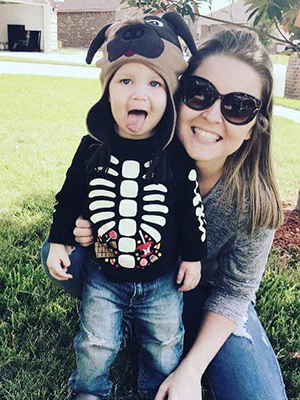
Our Awesome Admin. Asst.
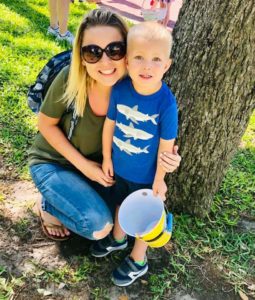
Meghan Jones
Meghan Jones is our awesome Admin. Assistant, otherwise known as our “Jill of All Trades”. She handles our registration, keeps up with our enormous provider contact list, our company schedule and calendar, and she is our main point of contact for scheduling, other than myself. We couldn’t make it without our Meghan! I know many of you have talked to Meghan over the phone.
You may contact her to complete registrations, set up on-site visits from our consultants, request invoice sent to you directly, or for other questions at: meghanjones.tx@gmail.com
Promoting Senior’s health and wellness
Seniors have always ignored health promotion activities meant to promote their health. This is because their health status is perfectly normal, and they do not consider themselves at significant risk of falling ill. However as a senior ages; a number of things can happen which can leave the senior injured or sick and possibly needing 24-hour nursing care like the one provided at www.carltonseniorliving.com/ and residencesatplainview.com/community/your-retirement-community/. It is common knowledge that elderly individuals are at risk for a number of health related issues – heart attacks are commonly suffered by the elderly and they can also have strokes or other critical illnesses. When these events occur after getting out of bed without the help of a nurse or even a doctor’s assistance this is called accidental falls in the elderly and it is the leading cause of injury related deaths for this age group in the US today!
Senior citizens tend to have more chronic conditions or multiple sclerosis than younger people. They often have a limited capacity when it comes to their functional capabilities. They also have certain restrictions in their diet since they have already reached the age where they have to watch what they eat so as not to develop different diseases caused by our unhealthy lifestyle such as obesity, hypertension and diabetes. It also has to be noted that they are unable to have frequent physical activities so they do not have the energy that they need to move and perform necessary daily activities. Because of these circumstances above that these people face everyday it is important that they start taking care of themselves as early as possible in order to maximize their health and prolong their lives to the fullest possible.

One of the ways that you can help your seniors is to monitor their lifestyle habits so that they can live healthy lives longer without experiencing unnecessary illnesses that can shorten their life as well as yours. If you think you’re unable to care for them properly, we highly suggest having a family discussion to determine if a community living for seniors like Riverview Senior Living is the best option for your family. You can check out this memory care community for seniors or this popular assisted living community if needed. By talking to them about their health and living routine, you will be able to find out what is happening that is affecting their health. Communicate with your loved ones in a way that they can clearly understand what you are talking about and remember to talk slowly and ask if they are understanding what you really mean. If you want to find assisted living options for your elderly loved ones, you can learn about assisted living here and see various amenities that can help with their current lifestyle.









